#tracie morris
Explore tagged Tumblr posts
Photo
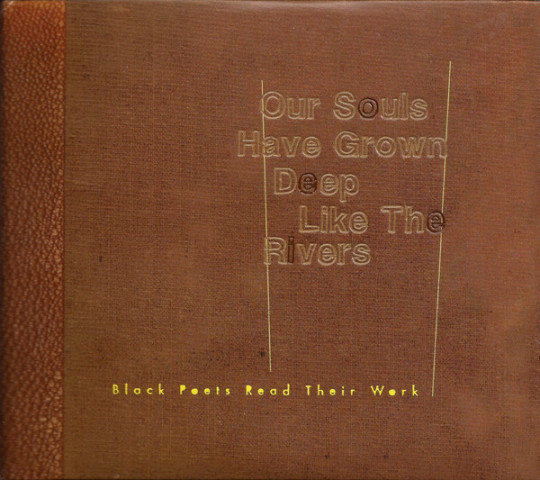
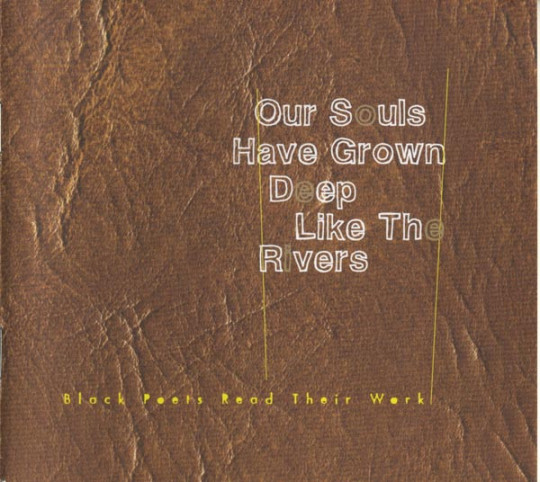
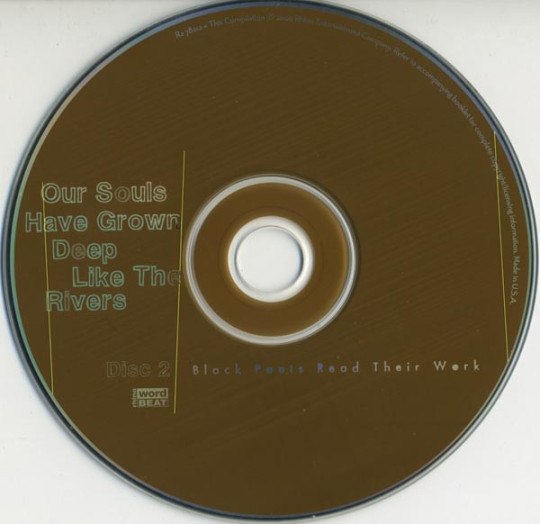

Our Souls Have Grown Deep Like Rivers - Black Poets Read their work
2 x CD, Compilation, 2000
#poetry recording#poetry#recording#poets#CD#audre lorde#amiri baraka#nikki giovanni#tracie morris#langston hughes#WEb Dubois#Claude Mckay#James Weldon#Sterling A Brown#gwendolyn brooks#robert hayden#May aAngelou#Derek Walcott#The last poets#Lucille Clifton#Al Young#Sonia Sachez#Ishamel Reed#Wole Soyinka#Wanda Coleman#Gil Scott Heron#Rita Dove#Allison Joseph#Public Enemy
106 notes
·
View notes
Text
Suzy Sureck, Fiely Matias, Zap Mama, Tracie Morris
Martha Cinader speaks with Suzy Sureck, Tony Robles with Fiely Matias, spoken word by Zap Mama, Tracie Morris
Multi-media artist Suzy Sureck, children’s author Fiely Matias, spoken word by Zap Mama, Tracie Morris Subscribe at Spotify Subscribe at Apple Subscribe at Google Martha Cinader speaks from Greenville, SC with Suzy Sureck in Hudson Valley, New York, about her multi-media installation Tread Lightly, which combined music created by the vibrations of tree roots, poetry, art and movement. Tony…
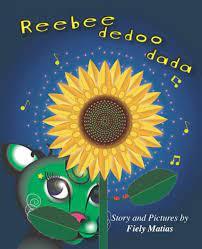
View On WordPress
#children&039;s author#Fiely Matias#Poetry#spoken word#Suzy Sureck#Tracie Morris#United States of Poetry#Zap Mama
0 notes
Photo






Look who bothered coming to work. COLD CASE 5.01 ‘Thrill Kill’
#coldcaseedit#Cold Case#Kathryn Morris#Danny Pino#Tracie Thoms#userthing#tuserheidi#usershale#userkraina#smallscreensource#cinematv#thatsent#userentertainments#dailycolorfulgifs#ours#by SPL#Lilly Rush#Kat Miller#Scotty Valens#userairi#userkayjay#usercats#tvfilmsource#filmtvcentral#tvarchive
181 notes
·
View notes
Text








𝘽𝙡𝙤𝙤𝙙𝙮 𝙈𝙪𝙧𝙙𝙚𝙧 (2000)
#laughingcrass#bloody murder#2000#2000s films#2000s horror#christelle ford#tracy pacheco#david smigelski#patrick cavanaugh#jessica morris#horror movies
8 notes
·
View notes
Text
SPIRITED:
Christmas Good feels lost
Wants to fix cruel marketer
Learns to seek own wants
youtube
#spirited 2022#random richards#poem#haiku#poetry#haiku poem#poets on tumblr#haiku poetry#haiku form#poetic#ryan reynolds#will ferrell#octavia spencer#patrick page#sunita mani#Loren g. woods#tracy morgan#joe tippett#Marlow Barkley#aimee carrero#Andrea anders#Sean anders#john morris#a christmas carol#charles dickens#benj pasek#justin paul#Youtube
4 notes
·
View notes
Text
Currently listening to one of my favorite Les Misérables recordings ever. Debra Byrne is such a terrific Fantine, and (dare I say?) I like Gary Morris more as Valjean than Colm Wilkinson. Meanwhile, Philip Quast is amazing (as always). Kaho Shimada, Michael Ball, and Tracy Shayne sound heavenly, especially during In My Life/A Heart Full of Love. And, of course, Anthony Warlow is so passionate as Enjolras that I can clearly envision him in my mind.
#les miserables#les mis complete symphonic recording#musical theatre#musicals#debra byrne#gary morris#philip quast#kaho shimada#michael ball#tracy shayne#anthony warlow#Spotify
6 notes
·
View notes
Text
Anne Boleyn Readathon
I am taking part in Escape the Readathon this month (you can read more about my involvement in that here), but this weekend (17-19 May) I took a break from my planned TBR and dove head first into into the mass of nonfiction about Anne Boleyn I’ve acquired. For those who don’t know, 19 May is the anniversary of Anne Boleyn’s execution. On that date in 1536, Anne Boleyn, Queen of England, was…

View On WordPress
#Anne Boleyn#Anne Boleyn Readathon#Boleyn Family#Books#Elizabeth Boleyn#Elizabeth I#Elizabeth Tudor#England#English History#George Boleyn#Guidebook#History#Margaret of Austria#Mary Boleyn#Natalie Grueninger#Nonfiction#Queen Claude of France#Readathon#Readathons#Reading Challenges#Sarah Morris#Sylvia Barbara Soberton#Thomas Boleyn#Tracy Borman
1 note
·
View note
Text
doodles of SoL characters and more stuff of my ocs :3

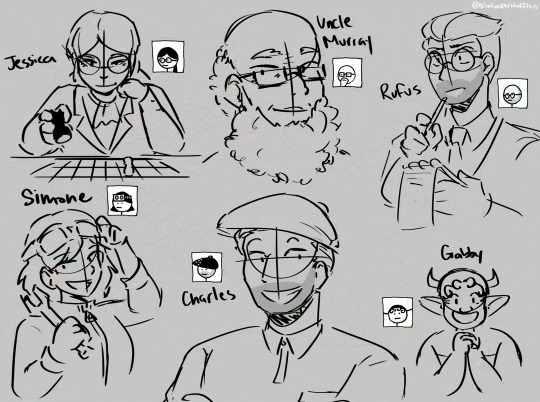
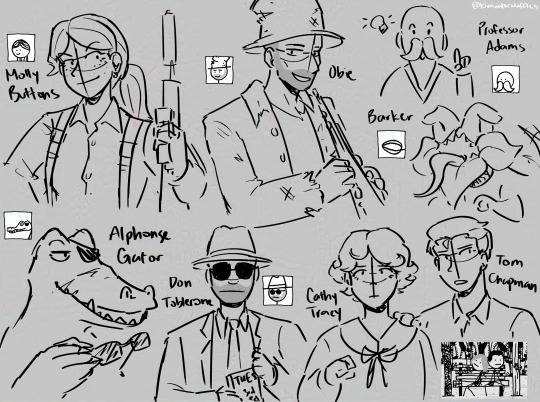
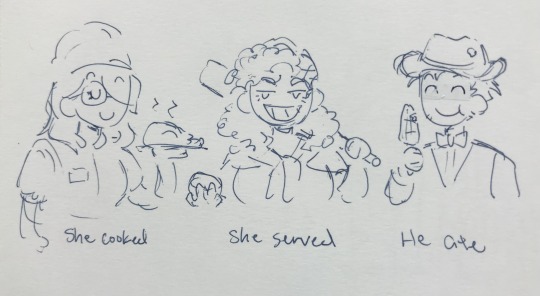

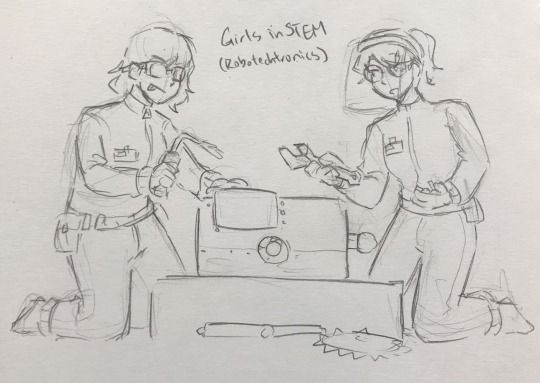
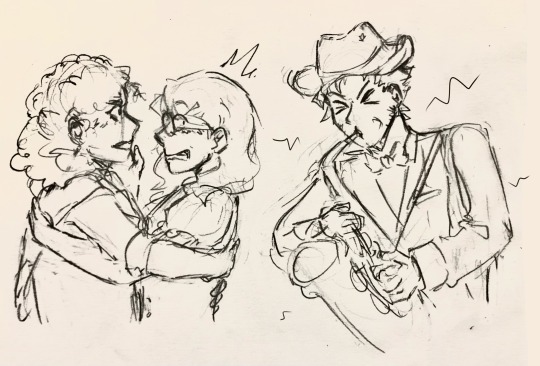
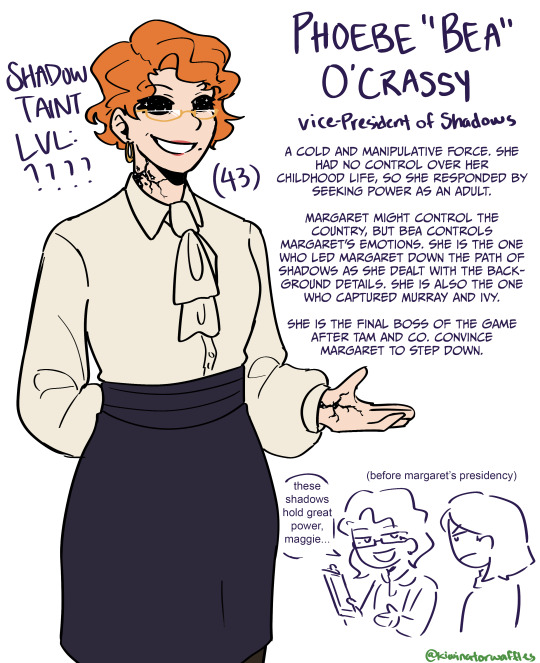






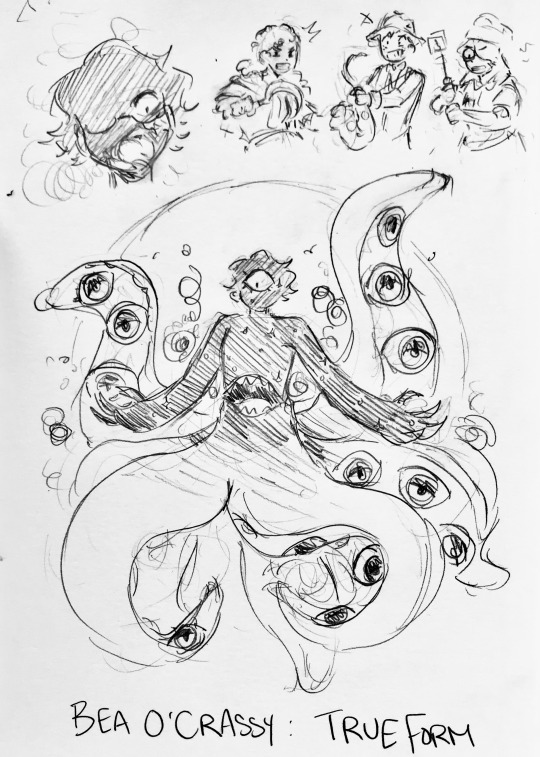

i've just been stuffing my sketchbook with doodles of the blorbos from my brain LMFAOOOO
sorry to every other social media i have the only place that's getting consistent uploads is toyhouse </3
the alt text will also contain oc names alongide the image descriptions!
#body horror#eyes tw#shadows over loathing#loathingblr#asymmetric#fandom ocs: the loathingverse by asymmetric#kiwi’s scribbles#kiwi’s ocs#oc: tam foolleray#oc: austin dieot#oc: leah fei#dark noël#general bruise#terrence poindexter#margaret dooley#sol jessica#murray morris#sol rufus#sol charles#simone chekhov#sol gabby#molly buttons#obie the oboe hobo#professor adams#sol barker#alphonse gator#don toberlone#cathy tracy#tom chapman#i know probably not a lot of people will see this post but i just like writing alt text actually its fun
18 notes
·
View notes
Photo

“(317): If you set your screensaver to be a slides show, make sure you remove dick pics first. This lesson 1 of living with your great aunt“
#heartland#crystal#keegan connor tracy#georgie crawley#georgie fleming morris#alisha newton#crystal/georgie#source: texts from last night
1 note
·
View note
Text

NEUTRAL LEANING MASC NAMES ⌇ abner. abram. adam. adrian. alex. alistair. andreas. ariel. arlen. arley. arlo. ash. atlas. auden. august. austin. avery. bailey. baron. barrett. baylor. beauden. bee. bellamy. bennett. blair. blaise. bowen. brayden. brendan. bronson. bryce. byron. caius. caleb. callahan. callan. calloway. callum. camden. cameron. carlin. carson. casey. cassian. chandler. chase. cody. cole. connolly. corban. corwin. cyrus. dallas. damion. damon. daniel. darius. davis. dawson. daylon. denver. desmond. devin. doran. dorian. drew. elian. elias. ellery. ellison. emery. ethan. evan. ezra. fallen. farren. finley. ford. foster. gabriel. gannon. garner. gavin. gentry. graham. greer. griffin. guthrie. harley. harlow. hartley. hayden. henley. henry. heron. hollis. hunter. ian. irving. isaiah. jace. james. jameson. jared. jeremiah. joel. jonah. joran. jordan. jory. josiah. jovian. jude. julian. juno. justus. kalen. kamden. kay. kayden. keaton. kellan. keller. kelly. kendon. kieran. kit. kylan. landry. lane. lennon. leslie. levi. leyton. liam. linden. lowell. luca. madden. marley. marlow. marshall. martin. mason. mathias. mercer. merritt. micah. miles. miller. milo. morgan. morrie. morrison. nate. nevin. nick. nicky. nico. nicolas. noah. noel. nolan. oren. orion. owen. parker. percy. perrin. peyton. pierce. porter. preston. quincy. quinn. reece. reid. reign. rein. remi. remington. renley. riley. river. robin. rollins. ronan. rory. rowan. russell. ryan. rylan. sam. samuel. sawyer. saylor. seth. shiloh. soren. spencer. stellan. sterling. talon. taylor. thaddeus. thane. theo. toni. tracy. tristan. tyrus. valor. warner. wells. wesley. whitten. william. willis. wylie.

NEUTRAL LEANING FEM NAMES ⌇ abigaël. abilene. addison. adrian. ainsley. alexis. and. andrea. arden. aria. ashley. aspen. aubrey. autumn. avery. avian. ayla. bailey. beryl. blair. blaire. blake. briar. brooklyn. brooks. bryce. cameron. camille. casey. celeste. channing. charlie. chase. collins. cordelia. courtney. daisy. dakota. dana. darby. darcy. delaney. delilah. devin. dylan. eden. eisley. elia. ellerie. ellery. ellie. elliot. elliott. ellis. ellory. ember. emelin. emerson. emery. evelyn. ezra. fallon. finley. fiore. florence. floris. frances. greer. gwenaël. hadley. harley. harper. haven. hayden. heike. hollis. hunter. ivy. jade. jamie. jocelyn. jordan. jude. juno. kelly. kelsey. kendall. kennedy. koda. kyrie. lacey. lane. leighton. lennon. lennox. lesley. leslie. lilian. lindsay. loden. logan. lou. lyric. madison. mallory. marinell. marley. mckenzie. melody. mercede. meredith. mio. misha. monroe. montana. morgan. nico. nova. oakley. olympia. owen. page. palmer. parker. pat. paulie. perri. petyon. peyton. phoenix. piper. priscilla. quinn. raven. ray. reagan. reece. reese. remi. remy. riley. rio. river. robin. rory. rosario. rowan. ryan. rylie. sacha. sage. sam. sammy. santana. sasha. sawyer. saylor. severin. shannon. shelby. shiloh. skye. skylar. sloane. sol. soleil. sterling. stevie. sutton. swan. swann. sydney. tatum. taylo. taylor. tracey. valentine. vanya. vivendel. vivian. vivien. wren. wynn. yael.

#pupsmail︰names#name pack#name suggestions#name ideas#name list#fem names#feminine names#masc names#masculine names#neutral names#gender neutral names
2K notes
·
View notes
Text
this is a poll for a movie that doesn't exist.
It is vintage times. The powers that be have decided to again remake the classic vampire novel Dracula for the screen. in an amazing show of inter-studio solidarity, Hollywood’s most elite hotties are up for the starring roles. The producers know whoever they cast will greatly impact the genre, quality, and tone of the finished film, so they are turning to their wisest voices for guidance.
you are the new casting director for this star-studded epic. choose your players wisely.












Previously cast:
Jonathan Harker—Jimmy Stewart
The Old Woman—Martita Hunt
Count Dracula—Gloria Holden
Mina Murray—Setsuko Hara
Lucy Westenra—Judy Garland
The Three Voluptuous Women—Betty Grable, Marilyn Monroe, and Lauren Bacall
Dr. Jack Seward—Vincent Price
Quincey P. Morris—Toshiro Mifune
Arthur Holmwood—Sidney Poitier
R.M. Renfield—Conrad Veidt
278 notes
·
View notes
Text

Zargon awaits beneath The Lost City -- Kevin Glint updates the look of a classic encounter from module B4, first drawn by Jim Holloway:

Quests from the Infinite Staircase (July 16, 2024) will include 5e conversions of 6 D&D/AD&D adventures from the 1980s:
B4: The Lost City by Tom Moldvay (1982, originally for Moldvay's version of Basic D&D)
UK4: When a Star Falls by Graeme Morris (1984, originally for AD&D)
UK1: Beyond the Crystal Cave by Dave J Brown, Tom Kirby, and Graeme Morris (1983, AD&D)
I3: Pharaoh by Tracy and Laura Hickman (1982, AD&D)
S4: The Lost Caverns of Tsojcanth by Gary Gygax (1982, AD&D)
S3: Expedition to the Barrier Peaks by Gary Gygax (1980, AD&D)
#D&D#Dungeons & Dragons#Kevin Glint#Zargon#The Lost City#AD&D#Basic D&D#dnd#D&D 5e#5e#TSR#WotC#Gary Gygax#1980s#Dungeons and Dragons
206 notes
·
View notes
Text





Fred Armisen, cast (2002–13)
Alec Baldwin, 17-time host (1990–2017)
Vanessa Bayer, cast (2010–17)
Candice Bergen, five-time host (1975–90)
Aidy Bryant, cast (2012–22)
Dana Carvey, cast (1986–93)
Chevy Chase, cast and writer (1975–76)
Michael Che, writer (2013–present), cast (2014–present)
Ellen Cleghorne, cast (1991–95)
Billy Crystal, cast (1984–85)
Jane Curtin, cast (1975–80)
Pete Davidson, cast (2014–22)
Rachel Dratch, cast (1999–2006)
Nora Dunn, cast (1985–90)
Jimmy Fallon, cast (1998–2004)
Tina Fey, writer (1997–2006), cast (2000–6)
Will Forte, cast (2002–10)
Janeane Garofalo, cast (1994–95)
Ana Gasteyer, cast (1996–2002)
Bill Hader, cast (2005–13)
Darrell Hammond, cast (1995–2009), announcer (2014–present)
Marcello Hernández, cast (2022–present)
James Austin Johnson, cast (2021–present)
Leslie Jones, cast and, writer (2014–19)
Colin Jost, writer (2005–present), cast (2014–present)
Chris Kattan, cast (1996–2003)
Julia Louis-Dreyfus, cast (1982–85)
Steve Martin, 16-time host (1976–2022)
Kate McKinnon, cast (2012–22)
Tim Meadows, cast (1991–2000)
Seth Meyers, cast (2001–14), writer (2003–14)
Tracy Morgan, cast (1996–2003)
Garrett Morris, cast (1975–80)
John Mulaney, writer (2008–13), six-time host (2018–24)
Mike Myers, cast (1989–95)
Laraine Newman, cast (1975–80)
Don Novello, writer (1978–80 1985–86), cast (1979–80, 1985–86)
Cheri Oteri, cast (1995–2000)
Chris Parnell, cast (1998–2006)
Nasim Pedrad, cast (2009–14)
Jay Pharoah, cast (2010–16)
Joe Piscopo, cast (1980–84)
Amy Poehler, cast (2001–8)
Maya Rudolph, cast (2000–7)
Andy Samberg, cast (2005–12)
Molly Shannon, cast (1995–2001)
Sarah Sherman, cast (2021–present)
Martin Short, cast (1984–85)
Sarah Silverman, cast and, writer (1993–94)
David Spade, writer (1990–91), cast (1990–96)
Cecily Strong, cast (2012–22)
Jason Sudeikis, writer (2003–5), cast (2005–13)
Julia Sweeney, cast (1990–94)
Terry Sweeney, writer (1980–81 1985–86), cast (1985–86)
Kenan Thompson, cast (2003–present)
Christopher Walken, seven-time host (1990–2008)
Kristen Wiig, cast (2005–12), five-time host (2013–24)
Casey Wilson, cast (2008–9)
Bowen Yang, writer (2018–19), cast (2019–present)
Sasheer Zamata, cast (2014–17)
26 notes
·
View notes
Text







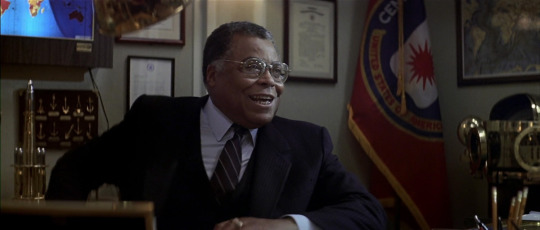
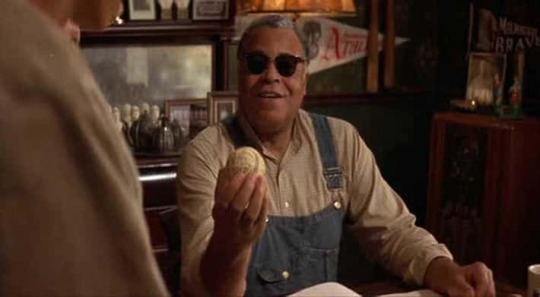

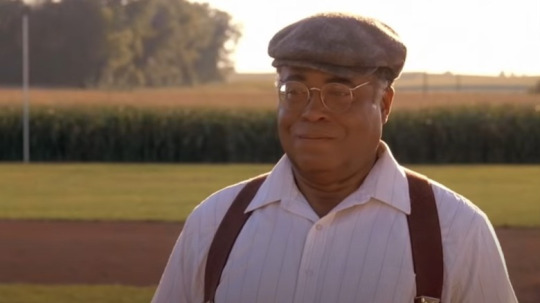
Whenever you feel alone, just remember that those kings will always be there to guide you. And so will I.
Born to a turbulent family on a Mississippi farm, James Earl Jones passed away today. He was ninety-three years old. Abandoned by his parents as a child and raised by a racist grandmother (although he later reconciled with his actor father and performed alongside him as an adult), the trauma of his childhood developed into a stutter that followed him through his primary school years – sometimes, his stutter was so debilitating, he could not speak at all. In high school, Jones found in an English teacher someone who found in him a talent for written expression, and encouraged him to write and recite poetry in class. He overcame his stutter by graduation, although the effects of it carried over for the remainder of his life.
Jones' most accomplished roles may have been on the Broadway stage, where he won three Tonys (twice winning Best Actor in a Play for originating the lead roles in 1969's The Great White Hope by Howard Sackler and 1987's Fences by August Wilson) and was considered one of the best Shakespearean actors of his time.
But his contributions to cinema left an impact on audiences, too. Jones received an Honorary Academy Award alongside makeup artist Dick Smith (1972's The Godfather, 1984's Amadeus) in 2011. From the end of Hollywood's Golden Age to the dawn of the summer Hollywood blockbuster in the 1970s to the present, Jones' presence – and his basso profundo voice – could scarcely be ignored. Though he could not sing like Paul Robeson nor had the looks of Sidney Poitier, his presence and command put him in league of both of his acting predecessors.
Ten of the films James Earl Jones appeared in, whether in-person or voice acting, follow (left-right, descending):
Dr. Strangelove or: How I Learned to Stop Worrying and Love the Bomb (1964) – directed by Stanley Kubrick; also starring Peter Sellers, George C. Scott, Sterling Hayden, Keenan Wynn, and Slim Pickens
The Great White Hope (1970) – directed by Martin Ritt; also starring Jane Alexander, Chester Morris, Hal Holbrook Beah Richards, and Moses Gunn
Star Wars saga (1977-2019; A New Hope pictured) – multiple directors, as the voice of Darth Vader, also starring Mark Hamill, Harrison Ford, Carrie Fisher, Peter Cushing, Alec Guinness, Billy Dee Williams, Anthony Daniels, David Prowse, Kenny Baker, Peter Mayhew, and Frank Oz
Claudine (1974) – directed by John Berry; also starring Diahann Carroll, Lawrence Hilton-Jacobs, and Tamu Blackwell
Conan the Barbarian (1982) – directed by John Milius; also starring Arnold Schwarzenegger, Sandahl Bergman, Ben Davidson, Cassandra Gaviola, Gerry Lopez, Mako, Valerie Quennessen, William Smith, and Max von Sydow
Coming to America series (1988 and 2021; original pictured) – multiple directors; also starring Eddie Murphy, Arsenio Hall, John Amos, Madge Sinclair, Shari Headley, Jermaine Fowler, Leslie Jones, Tracy Morgan, and KiKi Layne
The Hunt for Red October (1990) – directed by John McTiernan; also starring Sean Connery, Alec Baldwin, Scott Glenn, and Sam Neill
The Sandlot (1993) – directed by David Mickey Evans; also staring Tom Guiry, Mike Vitar, Patrick Renna, Chauncey Leopardi, Marty York, Brandon Adams, Grant Gelt, Shane Obedzinski, Victor DiMattia, Denis Leary, and Karen Allen
The Lion King (1994) – directed by Roger Allers and Rob Minkoff, as the voice of Mufasa; also starring Jonathan Taylor Thomas, Matthew Broderick, Jeremy Irons, Moira Kelly, Niketa Calame, Ernie Sabella, Nathan Lane, and Robert Guillaume, Rowan Atkinson, Whoopi Goldberg, Cheech Marin, Jim Cummings, and Madge Sinclair
Field of Dreams (1989) – directed by Phil Alden Robinson; also starring Kevin Costner, Amy Madigan, Ray Liotta, and Burt Lancaster
#James Earl Jones#Dr. Strangelove#The Great White Hope#Star Wars#A New Hope#Claudine#Conan the Barbarian#Coming to America#The Hunt for Red October#The Sandlot#The Lion King#Field of Dreams#The Empire Strikes Back#Coming 2 America#Return of the Jedi#Darth Vader#Mufasa#Oscars#in memoriam
27 notes
·
View notes
Text
A few of Far Cry 5’s characters’ former names (according to the files)
Did you know that some characters used to have different names? Here’s what I found:
Adelaide Drubman - Penny Johnson (I’m not sure; it’s unclear)
Casey Fixman - Casey Seagal or Casey Storm
Chad Wolanski - Chad Gardetto
Faith Seed - Selena Seed
George Wilson - George Beel
Guy Marvel - Guy Martel (headcanon: it’s still his name but he thought Marvel was a cooler name for a movie director)
Hurk Drubman Senior - Wayne Senior
Joseph Seed - Daniel Seed
Merle Briggs - Merle Clinton
Wilhelmina Mable - Wilhelmina Maybelline
Tammy Barnes - Tammy Palmer (was she supposed to be Eli’s wife? Maybe!)
Tracey Lader - Traci West
Virgil Minkler - Virgil Knutsen
Wendell Redler - Wendell Darrah
Xander Flynn - Bob Johnson (again, like for Adelaide, not sure)
Also, I’ve said this before but Deputy Pratt’s first name is actually Stacy and not Staci. In the files, it’s only not spelled Stacy once, in the end credits... which is also, unfortunately, the only time players had a chance to see it written.
According to the files, Larry Parker’s first name is Laurence, the man we meet near Arcade machines is Morris Aubrey, and the fisherman is Coyote Nelson… but his description in the unreleased in-game encyclopedia also implies he died, so that might be inaccurate.
Below are the names of other Hope County residents (and where they live(d) and/or work(ed)) found in the deleted in-game encyclopedia:
Daniel Holmes — Holmes Residence
Doug and Debbie Hadler — Gardenview Orchards, Ciderworks, and Packing Facility
Rae-Rae Bouthillier — Rae-Rae's Pumpkin Farm
Niesha Howard — Howard Cabin
Emmet Reaves (in the late 1800s) — Copperhead Rail Yard & Prosperity
Will Boyd (from Far Cry: Absolution; his full name is William) — Boyd Residence
Les Doverspike — Doverspike Compound
Mike and Deb Harris — Harris Residence
Wolfgang Dodd — Dodd’s Dumps
Colin Dodd (Nadine Abercrombie’s grandfather) — Dodd Residence
Joe Roberts — Roberts Cabin
Dr. Kim Patterson — Hope County Clinic
Bobby Budell (in 1946) — Flatiron Stockyards
Doug Fillmore — Fillmore Residence
Orville Fall (found gold in 1865) — Catamount Mines
Mike and Chandra Dunagan — Sunrise Farm
The Redler family (Wendell’s) — Red’s Farm Supply
Andrew and Frances Woodson — Woodson Pig Farm
Don Sawyer — Sawyer Residence
Kay Wheeler — Kay-Nine Kennels
Jules Adams (and an unnamed husband) — Adams Ranch
Jerry Miller (and his family) — Miller Residence
Rick Elliot (his full name is Richard according to a message left by Eli) — Elliot Residence
Jay Loresca — Loresca Residence
"Lonely Frank" — Frank’s Cabin
Dicky Dansky — Dansky Cabin
Roy Tanami — Tanami Residence
Mr. Vasquez — Vasquez Residence
Mr. McDevitt — Misty River Gas
Darby McCoy — McCoy Cabin
Dr. Phil Barlow — Barlow Residence
Travis McClean (and his husband Brent) — McClean Residence
Jasmine Chan — Chan Residence
Jerrod Wilson (in the 1800s) — Throne of Mercy Church
Frankie Sinclair — Sinclair Residence
Lydia (in 1912) — Lydia’s Cave
Dwight Feeney (the chemist who worked with Eden’s Gate and dies in the mission “Sins of the Father”) — Feeney Residence
Lorna Rawlings — Lorna’s Truck Stop
Edward O'Hara — O’Hara’s Haunted House
Kanti Jones — Jones Residence
Coyote Nelson — Nelson Residence
Holly Pepper (and her girlfriend Charlie) — Pepper Residence
Nolan Pettis — Nolan’s Fly Shop
Bob and Penny Johnson — Johnson Residence
Melvin Adams Abercrombie — Abercrombie Residence
Steve McCallough — McCallough’s Garage
Dr. Rachel Jessop (who, and I’ll keep saying this every time I can, was never Faith and always another, entirely different person) — Jessop Conservatory
Dwight Seeley — Seeley’s Cabin
#far cry 5#hey I CAN tag everyone this time!#adelaide drubman#casey fixman#chad wolanski#faith seed#rachel jessop#(so not the same rachel)#george wilson#guy marvel#hurk drubman sr#joseph seed#(my headcanon is that daniel is his middle name)#merle briggs#wilhelmina mable#miss mable#tammy barnes#tracey lader#virgil minkler#wendell redler#xander flynn#staci pratt#but actually#stacy pratt#larry parker#far cry absolution#will boyd
51 notes
·
View notes
Text
Hellhounds on His Trail: E L U C I D's REVELATOR

I speak what I see.
—Saul Williams, “Elohim (1972)” (1998)
I say that one must be a seer, make oneself a seer. The poet makes himself a seer by a long, prodigious, and systematic derangement of all the senses.
—Arthur Rimbaud, “Letters of the Seer” (1871)
Every technological change begins with a spiritual revelation.
—Nathaniel Mackey (2016)
1. LASCIATE OGNI SPERANZA, VOI CH’ENTRATE
The same motherfucker got us living in his hell.
—Chuck D, Public Enemy’s “Black Steel in the Hour of Chaos” (1988)
I must forewarn you even now: what I intend to speak about, and in which I shall get myself entangled for reasons more serious than my incompetence, they are, I believe, without solution or exit. Two years ago, ELUCID promised that I Told Bessie could be significantly darker: “Trust me, it could be way more apocalyptic.” REVELATOR fulfills that promise. I Told Bessie introduced ELUCID as an anti-mystic mystic; on REVELATOR, we find him between the forge and the flame. He speaks from filthy tongue of god and griot, offering a <brand> of spiritual healing in the same <vein> as Dälek’s “Spiritual Healing” [for brand read “fire,” “cauterize,” “marked ownership”; for vein read “cold,” “spike,” “artery”]. At turns, his speech sounds of languages diverse, horrible dialects, accents of anger, words of agony, and voices high and hoarse. On ITB, ELUCID had just arrived in Heaven, trespassed its gates, yet stubbornly refused to sit down, to repose. On REVELATOR, he’s at Hell’s wrought-iron threshold, absolutely ruptured.
ELUCID emerges as a transgressive and dark magus speaking the omniversal language of Sun Ra. The first words spoken on REVELATOR, evidently ad-libbed, recall both Fritz Lang’s expressionistic Tower of Babel and Mister X’s psychitecture: “Metropolis…inverse overlord skyscape…” Another filmic nod would be to PTA’s There Will Be Blood (2017), where the climactic and classical rage of Daniel Plainview is unleashed as he screams: I am the Third Revelation! Plainview is, as his name intimates, an unbeliever, and he masterfully coerces preacher Eli Sunday into stating he’s a false prophet and that God is a superstition.
See, the First Revelation was in the Old Testament (Show me your commaaaandments, as ELUCID drones on “Barbarians”); the Second Revelation was Jesus sermonizing that new shit; why mightn’t it be that the Holy Spirit was preparing another? ELUCID delivers the Third Revelation; he is the Seer, the Revelator—entering through a hatch [re: portal] of Houston horrorcore and disharmonic hard bop. REVELATOR is his unexpurgated rendition of K-Rino’s Stories from the Black Book (1993). The mutant blues of ITB have turned to hypnotik hip-noize—serrated, jaggy, shrapKnel-shattered, caltrop-piercéd. We witness, firsthand, the doom gospel he has previously preached about in practice, in praxis, in the demoniac rhythms and the patterns. Ganksta N-I-P’s “Reporter From Hell” (1993) amalgamated with Rimbaud’s A Season in Hell (1873).
2. NOISOME THE EARTH IS
“Here in this hymn-deaf hell,” Rimbaud reports back, but in ELUCID’s hell all we hear are hymns—shrieks, semiwept, semisung. “A black wail is a killer,” Tracie Morris, Harryette Mullen, Jo Stewart, and Yolanda Wisher write in “4 Telling” (2021), a posse-cut poem. Production of “a satanic symphony,” Rimbaud says. Sounding like EPMD in the pulpit, Rimbaud claims “[t]heology is serious business: hell is absolutely down below.” He describes moonlight when the clock strikes twelve, “the hour when the devil waits at the belfry.” Go get a late pass, in other words, as PE presses on “Countdown to Armageddon” (1988) and ELUCID reiterates on “MBTTS” (2016). “Watch me tear a few terrible leaves from my book of the damned,” Rimbaud writes, appealing to the Devil, “...I will unveil every mystery.”
ELUCID unveils histories of mysteries during his descent. On record, he shares what he sees. He sees Rimbaud in Hell. He sees Kanye and JPEGMafia in hell, Ye with BURZUM in Gothic script emblazoned across his chest. He sees Rubble Kings with SS skulls and sigs sewn onto Flyin’ Cut Sleeves denim. He sees Black Benjie’s assassin in Hell. He sees Richard Hell in hell holding White Noise Supremacists to account for how they treated Ivan Julian (“Mutants can learn to hate each other and have prejudices too,” the latter told Lester Bangs). He says peace to SKECH185 and sees him “playing devil’s advocate with Steve Albini’s Black friend.” Finally, he sees the cerberus in hell—the “monster cruel and uncouth,” according to Dante (c. 1321)—the 3-headed anti-crowd dog. He sees its three gullets, red eyes, and unctuous beard and black and belly large. He sees the wretched reprobates. He sees muzzles filth-begrimed. He sees hellhounds here, there, and everywhere.
3. ROUND US BARK THE MAD AND HUNGRY DOGS
From forth the kennel of thy womb hath crept A hellhound that doth hunt us all to death—
—Shakespeare, Richard III, 4.4.49-50 (c. 1592-1594)
“Hands off,” ELUCID commands on “THE WORLD IS DOG,” the opening salvo on REVELATOR [salvo, a discharge of weaponry; yet also salivate: dog’s drool, secretion, spittle, spit the verse]. “It’s just happening,” he shouts—it’s happening to us; we are subjects of history, its malevolent thrum. “I can feel it ’fore you say it,” and I’ve no reason to doubt him. But allow me to litanize anyway.
In Afro-Dog: Blackness and the Animal Question (2018), Bénédicte Boisseron writes that the dog, the canis familiaris, is “an unwilling participant in the history of social injustice,” a casualty to a depraved Pavlovian conditioning. She cites an “association between canine aggression and black civil disobedience,” reflecting a “prism in which race and dogs insidiously intersect in tales of violence.” She refers to these as cyno-racial (dog-black) representations.

Bloodhounds—aptly-named barking, beastly embodiments of biopower—were “imported from Cuba or Germany” during slavery and “trained to pursue escaping slaves in both the Caribbean and the American South,” Boisseron writes. Dogs were designed to “become ferocious only when in contact with blacks.” The Narrative of James Williams, an American Slave, Who Was for Several Years a Driver on a Cotton Plantation in Alabama (1838) provides insight into this odious operation:
A negro is directed to go into the woods and secure himself upon a tree. When sufficient time has elapsed for doing this, the hound is put upon his track. The blacks are compelled to worry them until they make them their implacable enemies; and it is common to meet with dogs which will take no notice of whites, though entire strangers, but will suffer no blacks.
The Narrative of the Life and Adventures of Henry Bibb, an American Slave, Written by Himself (1849), meanwhile, offers a suspenseful, first-person account:
We had been wandering about through the cane brakes, bushes, and briers, for several days, when we heard the yelping of blood hounds, a great way off, but they seemed to come nearer and nearer to us. We thought after awhile that they must be on our track; we listened attentively at the approach. We knew it was no use for us to undertake to escape from them, and as they drew nigh, we heard the voice of a man hissing on the dogs.… The shrill yelling of the savage blood hounds as they drew nigh made the woods echo.
The training, of course, isn’t only about ghoulish intimidation; the hunt would often climax with violence. “When the slave runs away,” Boisseron explains, “the master needs to symbolically reassert his domination through a ritualized act of flesh cutting.” [FANG BITE!] Frederick Douglass spoke of such savagery: “Sometimes in hunting negroes…the slaves are torn to pieces.” Mutilation of runaway slaves, Boisseron claims, enacted “a rhetoric of edibility.” Derrida called it carno-phallogocentrism, linking the slavehunter’s virility and carnivorism, savoring “deeper shades of carnage,” as ELUCID says on “ZIGZAGZIG.” It has never relented. In the wake of Michael Brown’s murder in 2014, the DOJ issued a report that detailed “puncture wounds” left in children by the Ferguson K-9 unit. The victims of these “bite incident[s]” were always Black.
ELUCID also speaks of how victims “force-feed a war machine” on “ZIGZAGZIG”—regions and relics swallowed whole, irrevocably. In their plateau “Becoming-Intense, Becoming-Animal, Becoming-Imperceptible…” (1980), Deleuze and Guattari write: “You become animal only molecularly. You do not become a barking molar dog, but by barking, if it is done with enough feeling, with enough necessity and composition, you emit a molecular dog.” Somewhere on a desolate Yonkers street corner, DMX sleeps with a pack of strays, lying in wait.

4.
Police forces…have used dogs to break up rioting mobs…. The dogs’ snapping teeth, swift movements and indifference to the crowds’ menacing threats have made mob control a routine procedure for the forces which have the dogs.
—“A Progress Report of the Assembly Interim Committee on Governmental Efficiency and Economy on Using Dogs in Police Work, California” (1960)
If a dog is biting a black man, the black man should kill the dog, whether the dog is a police dog or a hound dog or any kind of dog… [T]hat black man should kill that dog or any two-legged dog who sicks the dog on him.
—Malcolm X (1963)
In a contemptible case of cultural exchange, two German shepherds trained by a Nazi stormtrooper were used by police in Jackson, Mississippi to attack crowds in support of the Tougaloo Nine—Black students attempting to access books from a whites-only public library. That was in 1961. [TRUST NONE!] Two years later, Bull Connor utilized dogs to disperse protestors in Birmingham, notoriously documented by Charles Moore and Bill Hudson. Hudson’s photograph of fifteen-year-old Walter Gadsden in the mongrel maw of law enforcement fills textbook pages to this day, while Moore’s photo would be aestheticized and reproduced in Andy Warhol’s Race Riots series in 1964. “Police dogs is one of the accepted practices in police riot work,” a swinish Alabama sheriff said in ’63. Not much has changed. When people demonstrated outside the White House gates after the death of George Floyd, an orange fascist—who ELUCID begrudgingly won two long-standing bets on—threatened them with “vicious dogs.”

“Dogs were once perceived as dangerous due to rabies,” Boisseron writes, “but today the black man is the one responsible for making the big dog look ‘un-kind.’” A.G. rapped about the dogs with the rabies on 1992’s “Runaway Slave,” looking backward to understand his present, but by the ’90s, the ever-evil LAPD was calling Black people “dog biscuits.” An officer in a St. Louis suburb faced suspension after posting to Facebook that Ferguson protestors “should have been put down like a rabid dog the first night.” The aggression of the dogs, Boisseron points out, has “metonymically shifted from zoonotic to a racial context.” In essence, society shouldn’t fear the dogs—society should fear a Black planet populated by Black men. [FEAR ALL!]
The messaging has frequently been mixed—deliberately muddied (mutted, we might say) to defy understanding—racism skewing absurdist. In “A Dark Brown Dog” (1901), Stephen Crane used a “little dark-brown dog…an unimportant dog, with no value” with a “short rope…dragging from his neck” for allegorical purposes. [SHORT LEASH!] A child drags the dog “toward a grim unknown,” the child’s intolerant family. The dog is by its very nature powerless, “too much of a dog to try to look to be a martyr or to plot revenge.” Eventually, the drunk father beats the dog with a coffee pot and tosses him out of a fifth-floor window, falling dead in the alley below. Crane’s well-meaning story speaks to mystery writer Stanley Ellin’s comparison of the “solicitous white intellectual” and the “arrant racist,” the former of which “sentimentalized Black lives” and “patted them on the head as one would a pet spaniel.” To retreat to such romanticizing, Ellin says, fulfills the “function of the stereotype, and it matters very little whether the stereotype is that of vicious hound or pet poodle.”
As a child of the ’80s, ELUCID was exposed to the same surfeit of televised copaganda as the rest of us. McGruff the Crime Dog colonized our commercial breaks, asking us to join the feeding frenzy against drug dealers and burglars (Take a bite out of crime!). Meanwhile, Harlem World’s Herb McGruff provided counterprogramming and warned us of the real “Dangerzone.” “The idea of dogs attacking black people has become a haunting and unresolved image in the collective memory,” Boisseron writes, or, in ELUCID’s words: Eating everyone eventually. THE WORLD IS DOG!

5.
On SEERSHIP! (2020), a project ELUCID labeled a “work of spirit”—a work of glitch-hop and runt pulses and ill-bent illbient—we hear a blare of noise at roughly the one-minute mark. That calamitous blare is sublimated into the soundfury that sets off “THE WORLD IS DOG.” ELUCID’s bogeyman-down production, in collaboration with Jon Nellen’s urgent drumming and Luke Stewart’s grave-groove bass theories, provide for the sonics of a slave escape, equal parts panic and empowerment. “The dissonance is real,” ELUCID raps on “VOICE 2 SKULL,” “—I be feeling woozy,” and that’s the vibration here. In Dred: A Tale of the Great Dismal Swamp (1865), Harriet Beecher Stowe describes how the vengeful and unforgiving escaped slave Dred defends a runaway from a hellhound:
…a party of negro-hunters, with dogs and guns, had chased this man, who, on this day, had unfortunately ventured out of his concealment. He succeeded in outrunning all but one dog, which sprang up, and, fastening his fangs in his throat, laid him prostrate within a few paces of his retreat. Dred came up in time to kill the dog…
“THE WORLD IS DOG” is pulsing and gnashing, a sequence of switchbacks and untoggled kill switches, a hyper-aural freak-out, to borrow some phrases from ELUCID’s New York Times blurb for Ornette Coleman’s “Science Fiction.” We should’ve anticipated the arrival of “THE WORLD IS DOG,” should’ve been listening to the panting precursor curses. Be it the gold chain punk asphyxiation of Soul Glo opening for ELUCID at the ITB release show at Mercury Lounge in 2022; the absurd matter we heard from his Shapednoise feature in 2023, wherein he “backhoed the graves”; or his appearance on Kofi Flexxx’s “Show Me” a few months later (I show you what it look like…)—the signs were all there. When word got out that ELUCID was spinning Miles Davis’s “Rated X” (1974), we should’ve known it was over, cataclysmically.
If “Rated X” is the model, then ELUCID has set out to attain “music’s most elusive grail,” as Gary Giddins calls it in Visions of Jazz (1998): “the promise…of an open-ended form that defies harmonic conventions and regulation eight- and twelve-bar phrases in favor of a flexible but contained form.” An anonymous internet blogger called “Rated X” a “demented church service where the organist has become possessed by an evil spirit and worshippers have fallen into a trance.” ELUCID puts the incendiary fuse in fusion—dark energy acceleration | emergent fervor, fire & brimstone | Tony Williams Lifetime-type EMERGENCIES [ecphoneme—bang—ecphoneme—bang…]. This is rap-fusion—uncontrived, channel alive.

6.
“Fire for fire, wade in the water,” ELUCID raps on “YOTTABYTE,” singing the same sorrow song of a century-plus before. “Wade in the Water” (Roud 5439) was a spiritual that reminded the runaway slaves to use streams and rivers to throw the hellhounds off the scent. “If you hear the dogs,” Harriet Tubman said, “keep going.” If “THE WORLD IS DOG” begins in a dreaded delirium, it ends [DEVOLVE!] in radical resistance.
The faded amateur photograph that graces the cover of I Told Bessie shows a man fending off a German shepherd; or, feasibly, the man is elevating the dog—healing it, calming it, exorcizing its engrained demons. Admittedly, it’s a crazy mixed-up world, a doggy dogg [dog-eat-dog] world, and the dog can occupy valences of both killer and companion. Everyone is dehumanized in the slave hunt, in the crowd dispersal. The hunters and the cops are the actual beasts (“That’s the sound of da beast,” KRS howls; “the murderous, cowardly pack,” Claude McKay snaps); the hunted resort to instinct, fearing for their lives, amygdala swelling with signals.
In Martin Delaney’s serialized novel Blake; or, the Huts of America (1859-1862), protagonist Henry Holland, a.k.a. Blacus, a.k.a. Blake, wields a “well-aimed weapon” and “slew each ferocious beast as it approached him, leaving them weltering in their own blood instead of feasting on his.” Delaney doesn’t only draw scenes of retributive slaughter; his characters also speak of how “da black folks charm de dogs.” Threats neutralized. Power harnessed. The Yorkshire Terrier on the cover of Swans’ The Seer (2012) bares Michael Gira’s chompers—he’s merged with the pup. Hip-hop auto-interpellated dog into dawg (s/o to Althusser).
7.
As we learn from “Amager,” ØKSE’s song featuring billy woods, dogs only violate at the behest of men. woods relates a narrative of detainment at Trondheim Airport. The purportedly “colorblind drug dog” exudes innocence (“flopped on the floor, head on his paws”), though its mere presence smacks of discipline and punishment. As the Norwegian customs agent “palm[s] [woods’] clean drawers,” woods sardonically reflects, “I been a nigga too long.” He “know[s] the dance” and “know[s] the damn song,” resentful of this choreography of incurable racism that has been all too common and recurring throughout his life. He understands what’s happening epistemologically (“I know they hoping… I know I’m clean…”), but he also knows “those clammy hands going from the crack of [his] ass to the weight of [his] balls” are suggestive of castration, and when you’re crossing borders, what, what, say what, say what, anything can happen. As they go through the rigamarole of “mak[ing] calls, x-ray[ing] the empty suitcase, / [And] going back through [his] pockets,” woods stews with “impotent rage,” the aforementioned emasculation working its spell. He doesn’t begrudge the animal laboring under the aegis of the Tolletaten, though: I pet the dog as I leave. Scathed but saved. He charmed de dog.

8.
After dealing with so many strays I had learned one thing: be patient.
—E.A.R.L.: The Autobiography of DMX (2003)
Perhaps no figure better illustrates the subjugation and subversion of the hellhound than DMX. In the lead up to the millennium, Dark Man X embodied the dog of vengeance; he exemplified the undoing of the dog’s quasi-innate hatred of Blackness. In ELUCID’s words, he emerged as a “whole new nigga” with “skin [untorn], eyes [ungouged], hair [unshorn].” DMX’s arrival in 1998 felt like centuries in the making. He waged a vendetta in the name of every runaway slave and Civil Rights demonstrator. He’d slept on the streets and shared the concrete with his dogs, strays like himself:
Stray dogs are normally scared of people; they’re scarred by whatever neglect or abuse put them out on the street. Or if they’re lost, they’re depressed because they can’t find their way home. But that morning I decided that no matter how long it took, I was going to get that dog to come over to me. I was going to convince him to trust me and make him mine…. I started looking all over for strays that I could catch and train for myself…
DMX charmed de dogs and the rest of us in the process. He stayed shitty, cruddy, trading the cartoonish bow-wows we’d become accustomed to (via Snoop) for fierce grrrs and arfs, elevating rap’s onomatopoeics. With “Get At Me Dog,” he turned a familiar B.T. Express funk sample feral. In the video, the most achromatic Hype Williams ever managed, X holds possession of the Tunnel crowd, on a stage but of the people. His only bling: a stainless steel choke chain that collars his neck. The black-and-white video disorients with strobe effect and negative exposure—pitch blacks suddenly transform into flashing whites. Russell Simmons and Lyor Cohen look on from the periphery of the crowd like, well, out-of-place bitches. The video captures the raw power of DMX, his stygian intensity, reminiscent of Tadayuki Naitoh’s 1971 photograph of Miles Davis. Like X, Davis harnesses his rancor and exhibits his self-possession.
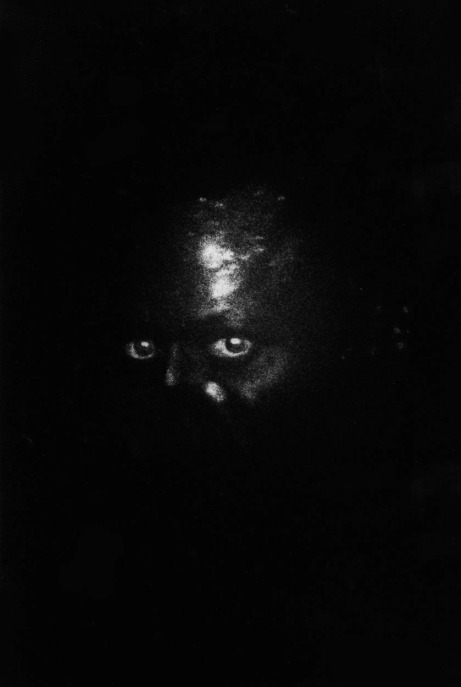
The success of DMX’s subversion of the dog trope likely apexed with his Woodstock ’99 performance. Before a majority white crowd of hyperthermic slavehunter descendants, DMX rocked what Thomas Hobbs calls “blood-red dungarees.” X “growls viscerally” and “convulses” across the stage in a manner “akin to a Bad Brains gig in a sweaty punk basement.” DMX—like Dred and Blacus before him, like ELUCID to come—subdues the monstrous, cowardly pack, and has them eating Milkbones out of his hand by the end of the 45-minute set.
9.
The first thing we feel on REVELATOR is a snarling, ravenous “fang bite” and the exhale of “dog breath.” We search for alternatives: the RZArector’s fangs on 6 Feet Deep (1994) maybe, a presence that Kodwo Eshun argues is akin to a head “filled with revelations that impeach the daylight.” We might think of the parallel universe of “The Big Rock Candy Mountains” (1928) where “dogs all have rubber teeth,” but REVELATOR doesn’t offer up that heavenscape—only a hellscape where teeth tear rabidly, rapidly. The “dog fangs [which dig] into black flesh,” Boisseron writes, are “deeply ingrained in popular culture.” We’d prefer the hip-hop context for “biting,” like when Rakim invokes “biting and borrowing” on “Follow the Leader,” where “brothers tried and others died to get the formula.” We’re on a “short leash” here, but Chuck D speaks of how he “cut the leash” on “Black Steel in the Hour of Chaos” and how prison bars “got [him] thinking like an animal,” and so I think we should act accordingly, tactfully, and lick our wounds.
ELUCID strafes us with 2-syllable units, iambs or IEDs, right from the start:
Fang bite Dog breath Short leash Pit fight
We’ve not felt shelling like this since the opening words of DMX’s It’s Dark and Hell Is Hot (1998):
One-two One-two Come through Run through Gun who? Oh, you don’t know what the gun do?
We’re propelled and pummeled by a Dark Enlightenment acceleration; unquestionably, we’re on our heels. ELUCID activates a sequence of 3-syllable units—anapests—as we descend into Hell:
From this height At this speed Downhill Careening
Later, the 2- and 3-syllable units alternate: “Shit that binds, / Spit out, / Ribs came spared.” Such blunt syllabics occur elsewhere on the album as well. “YOTTABYTE,” for instance, introduces a more dactylic, grounded pattern: “Hard science, / Scum gutter.” These are billboard throw-ups in Mister X’s Radiant City. They’re terse skull snaps like when Michael Gira sings, “Space cunt, / Brainwash” on “The Apostate.”
“I’m not psychic, but I’m reading,” ELUCID clamor-raps. The rapper has repeatedly denied the spiritual and supernatural in favor of tangible work, learning, reading. He much rather attend a demo or browse a bookstore than show his face at a séance or a church service. “The more I thought, the less I prayed,” he raps on “BAD POLLEN.” In this regard, he’s a dialectical materialist, much to the dismay of so many nimrod New Age seekers. ELUCID is not your self-help savior. Appropriating occult symbology in song is not inscribing sigils on the navel of a newborn. More likely he’s standing in solidarity with the child laborers pulling opal from the ochre mines of Madagascar. “Black Jesus hated bill collectors—I do the same,” he raps on “IN THE SHADOW OF IF.”
In The Conjure-Man Dies (1932), Rudolph Fisher’s Harlem murder mystery, the titular conjure-man, one N’Gana Frimbo, is the closest forebear to ELUCID, a practitioner of the aesthetics of alchemy but one who knifes through the nonsense:
There are those that claim the power to read men’s lives in crystal spheres. That is utter nonsense. I claim the power to read men’s lives in their faces…. Every experience, every thought, leaves its mark. Past and present are written there clearly…. My crystal sphere, therefore, is your face.
“I receive it, then I weigh it,” ELUCID explains. He’s no Knownot but he also knows that he knows nothing, in a Socratic sense (one day it’ll all make sense, trust me [TRUST NONE, FEAR ALL]). He’s a member of a tribe on a quest, receptive of vibes and stuff, asking questions like: What? Can I kick it? Does it live or die? Who gon’ tell me why? Who goes there? Who dare disturb the hive? He remains unflappable, constant, “still inside,” channeling his “honey child” while killa bees are on the swarm angling for the fatal sting.
Our “small world” is razed; it “devolve[s]” as hell is raised—it’s not that tricky. The dog’s got “jaws that grind” and “teeth that tear”; Dante tells us Cerberus “displayed his tusks” and “rends the spirits, flays, and quarters” his enemies. “Where’s a pit, there’s a plague,” ELUCID says, demonstrating syntactically that life is parallelism to Hell but we must maintain. Boisseron discusses the “hysteria around pit bulls” rooted in an “overblown fear of rabies,” and we watched a “plague” of reckless media representation caricature Michael Vick as the very animals he electrocuted. “Pit bulls have been historically used in America as a weapon of stigmatization against blacks,” Boisseron explains, and so every Black man takes up residence in the Bad Newz Kennel when the public deems it convenient, whether they would ever dare to hold the jumper cables or not. If the stigma doesn’t catch up to you, the sickness will. ELUCID’s “pit” evokes morgue trucks reversing up to the trenches in the potter’s field. Careful where you step, or else risk experiencing “a quick trip to glory if you slip.” Pitfalls on every corner, beneath the buildings of every block. Like DMX said on “Get At Me Dog,” If you don’t know by now, then you slippin’.

“Be not afraid,” ELUCID advises, bending Biblical. It is I. It is I. It is I. If we can keep up, he’ll usher us out of the ravaged world. If not, “don’t know, don’t care—get out my way!” ELUCID’s “in the garden,” his own private Gethsemane, agonizing and “pouring for everyone whole came before [him]” and didn’t survive the onslaught. He pours out a little liquor, and like Pac who had his “back against the brick wall, trapped in a circle, / Boxing with them suckers till [his] knuckles turn[ed] purple,” ELUCID is intoxicated by his own dogged determination. Pac was simply rewriting McKay, who likewise found himself “pressed to the wall, dying, but fighting back!” Glorious as it sounds, ELUCID’s exhausted—as we all are—by song’s end: voided. All he can put together are fragmented, clipped, incomplete idiomatic and figurative expressions: “razor walking”; “bridge to nowhere fast.” Still, he bites back. Like DMX, he’s “eating everyone eventually,” indiscriminately, re-establishing the order of “the world [that] is dog.” He, too, is dog. Sic ’em, and get sick wid’ it.
10. TEKNOHELL
Today the plagues of Revelation are…the disastrous results of…the irrational use of technology.
—Pablo Richard, Apocalypse: A People’s Commentary on The Book of Revelation (1995)
“Police dogs were often framed as technology,” writes Tyler Wall, a scholar of racialized state violence. He cites a Baltimore K-9 officer who claimed “[t]he dog is the most potent, versatile weapon ever invented…. You can’t shoot around corners, but dogs can go anywhere you direct them—like guided missiles.” These comments anticipated the NYPD’s rollout of actual automated, data-gathering robot dogs, of course. But “CCTV” and “YOTTABYTE” escort us into an arena of Ballardian extreme metaphors and emergent technologies—a teknohell—where “Spot bots” prowl every city block.

“CCTV,” co-produced by ELUCID and August Fanon, screeches like a dial-up modem gone diabolical—a discordant din of panic chords. They’ve programmed drum patterns around the sound of the CCTV shorting out—the dread comes in sine waves: megahertz hurts | multiplexing and motion-detecting | low-frame rate. The cameras are everywhere we look, but ELUCID splits the veil and the surveillance. The mandala is a panopticon, a C-band satellite dish for bodies to rot upon. Impaled by feedhorns. Parabolically resting in peace. In “a moment of clarity,” ELUCID fucks the noise and begs, “Don’t be mad at me.” I ain’t mad at cha. Who could begrudge the corner boy who cracks the lens of a varifocal security camera with a rock in the courtyard of the low-rises (they call it “the Pit” on The Wire)?
The ill communications that ELUCID was channeling on Armand Hammer’s We Buy Diabetic Test Strips continue to nauseate him. A year prior to that release, ELUCID told Gary Suarez that he was working to “dismantle what isn’t serving and then download and update with what does now.” For the man who “feel[s] a way about proving [his] identity to robots,” he can also acknowledge damage has already been done, which is evident in his diction. On SEERSHIP!, he despaired: “Every device I own knows my latitude.” On “NY Blanks,” he warned: “computers are listening.” In Jacques Derrida’s “Of an Apocalyptic Tone Recently Adopted in Philosophy” (1983), he describes a Tetsuo-like man/machine [MAchiNe] who loses clarity between the sender and the receiver of electronic messaging:
And there is no certainty that man is the exchange [le central] of these telephone lines or the terminal of this endless computer. No longer is one very sure who loans his voice and his tone to the other in the Apocalypse; no longer is one very sure who addresses what to whom. But by a catastrophic overturning here more necessary than ever, one can just as well think this: as soon as one no longer knows who speaks or who writes, the text becomes apocalyptic.
In this sense, REVELATOR is, at turns, an apocalyptic text. Much of ELUCID’s work has been. The cover of SEERSHIP! features a P1 phosphor font choice, as if it’s destined for a monochrome monitor. One might come to believe ELUCID writes in matrices of terminal green.
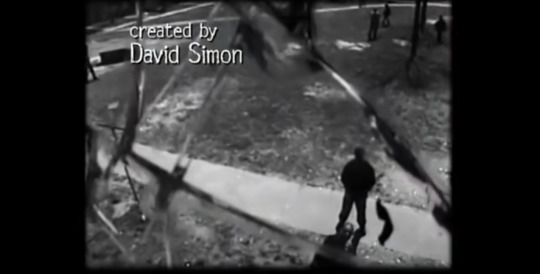
11.
In Fisher’s The Conjure-Man Dies, N’Gana Frimbo is questioned by Dr. Archer:
“You actually are something of a seer, aren’t you?” “Not at all…. I filled in the gaps, that is all. I have done more with less. It is my livelihood.” “But—how? The accuracy of detail—”
“Even if it were as curious as you suggest, it should occasion no great wonder. It would be a simple matter of transforming energy, nothing more. So-called mental telepathy, even, is no mystery, so considered. Surely the human organism cannot create anything more than itself; but it has created the radio-broadcasting set and receiving set. Must there not be within the organism, then, some counterpart of these? I assure you, doctor, that this complex mechanism which we call the living body contains its broadcasting set and its receiving set, and signals sent out in the form of invisible, inaudible, radiant energy may be picked up and converted into sight and sound by a human receiving set properly tuned in.”
ELUCID showcases his broadcasting set and his receiving set, but his carries the outlaw spirit of an illegal cable box or the pirate radio signal from the short-lived Dread Broadcasting Corporation out of West London in the 1980s. ELUCID as DJ Lepke in limbo.

12.
The title “VOICE 2 SKULL” evokes a note to self, a Nextel push-to-talk, or a voice-to-text: ELUCID as fully automated, as a cybernetic MC. But the human essence—the flesh, blood, and bone—is still there: “I get up before everyone and lose my mind first— / For even just an hour, I work in sound and feeling—sometimes fury, / Asking the whys and hows when lies turn to vows.” That is, he grinds; his work ethic, the grating of gears. He starts his day, travels where he will, but always “free roaming” and “pinging stupid” as a “transcontinental satellite receiver freaking forth.” On “XOLO,” as tek, he “reach[es] inside—only to [his] elbow, / [And] pull[s] it back out like [he] was rewound.” Like a VHS tape, or Betamax. Functioning as some new plastic idea. We’re all wired and wasting away with “mirror[s] in pockets” as we busy ourselves “looking hard in the camera.” Not squinting to make sense, merely modeling a manufactured exterior.
13.
Digital overlords don’t need free promo…
—ELUCID, ØKSE’s “Skopje”
The teknohell is ever-present on REVELATOR—you can’t escape its server rack bracket clutches. “Defrag the files,” ELUCID raps on “BAD POLLEN,” attempting to counter what Nathaniel Mackey calls a technology of decay. RFIDs, modems, CCTVs, pagers—all this tech isn’t anachronistic; it’s timeless—e-waste salvaged or scavenged—but ELUCID evolves, keeps it moving [...like a moving target], even if that means “bloody fingers on the keypad,” which we heard of on Valley of Grace. His own magnetic fields fuck up electronics; he lives in the “chaos hour shadow play” mentioned on “THE WORLD IS DOG.” “The situation’s unreal,” as Chuck D says on “Black Steel in the Hour of Chaos.” “There are no hard distinctions between what is real and what is unreal,” Harold Pinter responds. Ultimately, ELUCID is “wholly unimpressed by your social media metrics,” at least according to “MBTTS.” He offers up “brick and mortar rhyme for distorted time” and “offline [is where] [his] core thrives.” He knows what’s what: these gadgets and gizmos are “soon to be rendered useless: and then what?,” as he inquired on Small Bills’ “Even Without You.” Merchandise is Brand New Second Hand as you sit in an ergonomic swivel chair before Roots Manuva’s radiation-emitting dusty microwave. ELUCID searches for a truth beyond the motherboard.

14.
I tell you this in truth; this is not only the end of this here but also and first of that there…the end of history…the death of God, the end of religions…the end of the subject, the end of man, the end of the West…the end of the end, the end of ends, that the end has always already begun, that we must still distinguish between closure and end…. it is also the end of metalanguage on the subject of eschatological language…
—Derrida
…so let me shut the fuck up.
—Editor’s note [me]
Tell me a lie, tell me a truth becomes ELUCID’s Max Headroom mantra for “CCTV,” minus the sputtering, the glitching. We like to think that the “truth [will] find you where you at—it’s fine, it’s fair,” he raps on “RFID,” but, more often than not, revealing the truth requires trying. Your responsibility, Toni Cade Bambara insists, is to “try to tell the truth,” and “[t]hat ain’t easy.” It’s tough to summon the strength when we “have rarely been encouraged and equipped to appreciate the fact that the truth works.” The machinery of lies and disinformation come fine-tuned with a gleaming chrome finish. As for truth, we’re numb to its virtue; neutered by negative thoughts and clouded past experiences. But if we can pursue truth, prove it, and impress it upon our enemies, according to Bambara, “it releases the Spirit.”
The “cattle prod [will] shock you back some reality,” ELUCID raps. But truth can seem a hackneyed notion in the wrong hands. In Baldwin’s “Going to Meet the Man” (1965), Jesse, an abusive cop who takes sadistic pleasure in cattle prodding Civil Rights protestors, is charged with bringing the singing of jailed demonstrators to an end. He targets the “ringleader” of the group: “I put the prod to him and he jerked some more and he kind of screamed—but he didn’t have much voice left.” The protestor refuses to call for the others to stop singing, either out of defiance or debilitation from the beating he’s suffered, so Jesse’s frustration grows: “...the prod hit his testicles, but the scream did not come, only a kind of rattle and a moan.” Revisionist history can’t absolve the truth of that barbarity.
In one final [ex]plosive shout before “CCTV” transitions, ELUCID says, “Steal me your blues.” A call for reappropriation of what has already been plundered on a mass scale. The blues are never blameless. ELUCID collects blues and deranges ’em—traditional | twelve-bar | crowbarred | prison blues—deep cobalt with sapphiric crazing. REVELATOR most obviously invokes Blind Willie Johnson’s version of “John the Revelator” (1930), what with his scum gutter growl of Who’s that writin’? Jeff Place called Johnson a “guitar evangelist,” a man who was blinded by lye in his eyes at seven [the means of his marring and age should not go unnoticed], a reenactment, perhaps, of John the Revelator’s being dunked into the boiling oil cauldron—not nearly the “musky oils” ELUCID spoke of on “Obama Incense.” The teknohell is home to a Victor Talking Machine, no doubt, and the 78 RPM shellac record of Robert Johnson’s “Hellhound on My Trail” (1937) spins centripetal. RJ’s bottleneck slide screams phoenix as he sings, I got to keep movin’. For protection from the dogs—zig, zag, zig.
August Fanon and ELUCID sacrifice the frenetic for a straightforward refrain to conclude “CCTV,” something to mesmerize with layered vocals, subliminal messages not so sub- that they’re unmanageable. Take freedom: ELUCID wants you to hear the message, the charge. “All power to oppressed people” isn’t just a slogan for him; for others, as we know, it undeniably is. He asks for a “red light on the virtue signal for the come-latelys”; or, as PremRock says on ShrapKnel’s “Human Form”: “Closeted moderates post black squares then act scared of actual progress.” On “NY Blanks,” ELUCID “refuse[d] to kneel and pray for hashtag another slain name, / On the dashcam frame of sight.” Technology pervades every moment of life and language—from sonogram to dashcam and the SMS notifications of each and all else in-between.

15.
Child Actor’s production on “YOTTABYTE” traps us inside the machine with hex bolts knocked loose and rattling around. Again, technology works its way into everything. “Stints and priors, / Sweat labor, / August sun,” ELUCID raps, seemingly on a chain gang—the teknohell is a maximum security prison: biometrics | video analytics | signal-jamming | duress alarms. Data storage facilities bursting at the seams.
“Terabyte, gigabyte, niggas bite,” ELUCID spit on “Bitter Cassava,” adding with a whiff of cybersexuality, “I heard ass taste better in the summertime.” Do androids dream of having a romp with the provocatively named Deckard? Do Nexus-6 replicants have rape fantasies? “Came out the pussy and wrote a classic,” ELUCID says on “YOTTABYTE,” and I’m left wondering what Jodorowsky’s love machine from Holy Mountain (1973) might have to do with this. Cold and sterile tech-infused corporeality | conjugal visits with slinky cyborgs | proto-pornbots.
“SKP” presents as more sound poem than song—its patterns erratic, and therefore erotic—unpredictable with vocals pitched down and up arbitrarily. Andrew Broder provides a mellowed pulse backdrop, tunneling toward something visceral, and not the gear boxes and springs, the sensors and metal tubes, that make up a robot’s innards. ELUCID has previously proclaimed he was “a dyke in a past life,” a Sister Outsider standing alongside Audre Lorde: “Images of women flaming like torches adorn and define the borders of my journey, stand like dykes between me and the chaos.” “SKP”—Some Kind of Power—draws inspiration from Lorde’s “Uses of the Erotic: The Erotic as Power” (1984), which reframes eroticism, removes it from the teknohell.
I know you know the codes, ELUCID says. His lover has the key—they each possess a copy. And the key is crucial, at the crux of the relation; listen to what woods says on “INSTANT TRANSFER”: “It’s all skeleton keys on the keyring I keep, / Keys I never seen before for places I never even been, / Luxury cars—I key ’em and go to sleep.” Keys, keys, keys, as Angela Carter writes in “The Bloody Chamber” (1979)—to china cabinets and safes and every other secret place. The narrator’s husband, though, forbids his young wife from using one key in particular. Not the key to his heart, as she presumes (“skeleton key to ya heart,” ELUCID echoes on “CCTV”), but “the key to [his] enfer.” He teases and tantalizes her and throws all the keys into her lap as “the cold metal chill[s] [her] thighs through [her] thin muslin frock.” Something’s not quite right; “we was down singing off-key: how?” ELUCID says on “XOLO.” The key might crack the code | stroking and fondling | heavy petting | as artificial intelligence records the taps and timbre of your keystrokes, stealing sensitive passwords—a sensate focus therapy for anonymous internet users. Probably best to keep the key under the mat.
“The erotic is a considered source of power and information within our lives,” Lorde writes. ELUCID answers: “Knowing is enough—deepest core informing all.” The erotic, Lorde notes, “offers a well of replenishing and provocative force to the woman who does not fear its revelation.” “From here forth,” ELUCID says, “you spit, you scream, you burn my tongue too raw—be soft.” Erotic, Lorde explains, is from the Greek eros, “born of Chaos, and personifying power and harmony.” Harm may precede harmony; pain prior to reaching “beyond the posture and the program.”
“Call me out my name,” ELUCID commands, “I’ll be the one you cum for.” Even if he brushes against the sophomoric at times (“Baby, please pop that pussy for breakfast” would be one such example from the archives), ELUCID’s sex raps swerve sophisticated. Lorde says the erotic is often “confused with its opposite, the pornographic,” which would demonstrate sensation without feeling. When ELUCID says “call me out my name” to his lover, he’s exploring “how acutely and fully [they] can feel in the doing.” Lorde explains, “[A]s we begin to recognize our deepest feelings, we begin to give up…being satisfied with suffering and self-negation…with the numbness.”
The technological bent to “SKP” climaxes with connectivity (¿Tu Tienes WiFi?)—a mutual dependance—“power which comes from sharing deeply any pursuit with another person.” In 2020, ELUCID told Tim Fish about how a trip to South Africa inspired Valley of Grace (2017): “...my wife was there, she was still my girlfriend then, and she was working at a law center, working towards protecting sex workers…. So being there, she’s at work for at least 8 hours a day, and I’m in the flat just hanging out….” At the end of “SKP,” ELUCID declares “in a union made now, tomorrow anything…,” and we feel the phantom phrase “…is possible” in the absence that follows.
“There are many kinds of power,” Audre Lorde tells us, “used and unused, acknowledged or otherwise.” 2Pac, for instance, never achieved ELUCID’s level of erotic power in song. On “How Do U Want It?” (1996), Pac was forward with his proposal, seeking consent (“Tell me is it cool to fuck? / Did you think I come to talk? / Am I fool or what?”), but copped to his preference for pornographic perversions, the “positions on the floor” he invokes: “Ironic, ’cause I’m somewhat psychotic.” Lick before you bite, ELUCID raps on “BAD POLLEN,” his own nod to the erotic/psychotic dichotomy. But it’s more tempered than Pac’s imprudence. He seems to taunt Pac’s shortcomings on “YOTTABYTE”:
Wiggle with the lights on, Ripple off thrust, Ooh, it’s just us, Yes, I need it how I want it, Feel like Southern California with my belly full…
Not to say ELUCID’s erotic power is purely PG-13; it’s not. On “BAD POLLEN,” he “wake[s] up and thrust[s] inside [his] missus, / Two fistfuls of hair, [his] face buried.” Flashes of a possessive desire, an “I Wanna Be Your Dog” energy: So messed up—I want you here…in my room…I want you here. But even when ELUCID goes raunchy, it’s organic matter, raw materials—mud and bone and verdant muck—not nuts and bolts and a nexus of cables. His trysts always involve talking out the mud, crashing through the walls…, scorch, [and] stimuli response.

16.
I might work with the wires wet if we talking ’bout power…
—“INSTANT TRANSFER”
With SKECH185’s analog(ue) tape dispenser on loan (also note the Basinskian “disintegration tapes” mentioned on “IKEBANA”), ELUCID patches and splices the first bars of “INSTANT TRANSFER” in a terse trimeter:
Five side, keep the tape warm, Wrapped rays weighing way more, Racks raid how we wage war, Slack walk to a main course.
The alliterative and consonantal groupings (“wrapped rays”; “racks raid”; “weighing way”; “we wage war”; “slack walk”; “keep the tape”) and slant rhymes present an inconsistency that models a human touch—the warmth of the analog tape undermining digital media and the instantaneous [gratification and otherwise] operations of an ATM withdrawal, just as we see the plastic bank card repeatedly guided into the multi-function maw by a human hand in the “INSTANT TRANSFER” video.
Nostalgia is no retreat from the teknohell. Even on a memory song like “HUSHPUPPIES,” the hum of Integrated Tech Solutions interferes when ELUCID recalls the “static sizzle with the grease in stereo”—frying fish and the kitchen TV set in concert with one another. “HUSHPUPPIES” feels like a loose adaptation of Henry Thomas’s “Fishing Blues” (1928), a fond recollection of fish as sustenance. Both ELUCID and Thomas begin with an urgency; Thomas “went up on the hill about twelve o’clock,” and ELUCID speaks in a tongue-twisted, nursery rhyme: “Must find fried fish—it’s Friday.”
REVELATOR has us fearing for the worst: fish fried in sulfuric waters, gilled vertebrates pulled from the River Styx—but it’s not that. “HUSHPUPPIES” feels down-home, a brief view of before, of Bessie-time, of salve and saviors and stove-top safe haven. “Put on your skillet,” Henry Thomas sings, “Mama gonna cook ’em with the shortenin’ bread.” “HUSHPUPPIES” works as a child-vision folk song, much like the “choking on a church mint” episode of “Guy R. Brewer.” ELUCID is an artist composing twenty-first century folk ditties, intent on inclusion in the Roud Index. I’m wary of the “sugar water, lemon sugar, water lemon” lyric sequence, though—the words transmit, mutate, like a gain-of-function in the kitchen sink. I feel he’s trapped speaking with “the language of the on-again/off-again future, and it is digital,” as Laurie Anderson once said.
17. PEOPLE TEND TO THINK THAT A PAGER’S FOUL
In 1991, Q-Tip asked us if we knew the importance of a skypager. The responsibility fell to Phife Dawg to explain it in full:
The “S” in skypage really stands for sex, ………………………………………………….. At times I miss the pager so you don’t get vex, Having bad days like a voodoo hex, Conceptually, a pager is so complex that I be standing on the verge, ready to flex.
ELUCID portals us to that very ’90s dimension to pick up on Phife’s “-ex” rhyme scheme.
Skypage text, alphanumeric, Blind days—rain taste metallic, Dark roads lined with tall pine, Fire tongue in the annex.
Where Phife’s explication was elementary with its backronyming and monosyllabic rhymes, its simile and succinct storytelling, ELUCID’s post-millennial penchant for broken language and Holocene imagery elevates the archaic device of the skypager to the status of fetish item. One can see the huddled assemblage of survivors circled around the faint LCD glow on the annex floor, the acid rain falling through the collapsed roof.
18.
“14.4” drags us through the mass hysterics of Y2K mania with Saint Abdullah and The Lasso layering assorted ambient jazz touches to the Tron grid. ELUCID and SKECH185 fuck with the trellis modulation, raising a “Napster ’99” download speed from the titular 14.4kbps. They float over dial tones: “I dial in; you dial it down,” ELUCID says as he receives the signal from Armand Hammer’s “Landlines.” He’s charged with a “couple hundred-thousand watts,” so “do hold the line.” ELUCID and SKECH rap with “revolutionary millennial movements,” in the words of Eugene D. Genovese, “born in social catastrophe or in the fear of impending catastrophe.” Still, though, in the West African tradition, “time is cyclical and eternal; the religious tradition cannot then therefore readily provide for an apocalypse.” Fear all? Maybe it’s more fear none than we first thought.
I sometimes configure ELUCID as Aaron Dilloway (of Wolf Eyes, and—for our purposes here at present—their 2006 limited-release Dog Jaw) with a contact mic—full-contact stage presence | kilowatts killing | bringing the pain in a really real way. He wades in distortion, awash in both antiquated and active teknology (“*69—hit redial,” he remarks on “XOLO”). Hell is populated with tek—yottabytes of it like motes in sunlight, refracting his digipoetics. He announces proudly, “Afrika Islam loop in the key of my Lord,” which is a permanent—nearly park jamming—register for him to operate within. He dials in to Zulu Beats on WHBI 105.9 in New Jeruzalem and cracks codes for the afterfuture.

19. THE HAINTS OF HAM RADIO
Never polemical, ELUCID makes aslant references to oppressive histories, dating back antediluvian. One second he’s “in ya sundown town holding [his] dick dolo,” and the next he’s bouncing to bear witness to an “illegal chokehold.” He time travels from crabgrass frontiers to a sidewalk slab on Staten Island. He may be “too old to comfortably rock logos,” but he’s in-the-ever-know [and the ever-now] of former lives—he embodies Gift of Gab running from Feds in his red Pro-Keds, and he hits the racks of Saks Fifth Avenue with the Lo Lifes. Nowadays, though, he’s Naomi Klein’s No Logo incarnate. In another nanosec, he’s a po-mo narcocorrido singer reading “the note like Chalino, except it’s off the SIM card.” He’s hopping through traversable wormholes of genealogical blues “from Ham to Cush to Nimrod.” Settle our assassin’s eyes on Ham, hm?
In A Season in Hell, Rimbaud “set out in search of the true kingdom of the children of Ham.” Wyatt Mason argues that part of Rimbaud’s legend can be attributed to the rumors of him as “the scoundrel who sold slaves in Africa.” Though it’s accurate that Rimbaud was free roaming, sub-Saharan, his vagabondage through the Horn of Africa might not have included slave-trading—that point is disputed by his biographers. In The Rebel (1951), Camus called Rimbaud a “bourgeois trader” of percussion rifles and Ethiopian coffee, but made no mention of slaves. In 1994, China Achebe stated that “[w]hen Rimbaud became a slave trader, he stopped writing poetry” because poetry and slave trading “cannot be bedfellows.” When he wasn’t tagging up the Luxor Temple on a lark in Egypt or running guns across the border into Shewa land, Rimbaud’s travelogue was interlarded with diagnoses of typhoid, synovitis, and osteosarcoma—his right leg eventually lopped off. Perhaps we can ascribe his disease-ridden body to A Season in Hell’s most profane moments, such as when he writes, “I’m an animal, a nxggxr. But I can be saved. You’re all fake nxggxrs…”

The so-called “curse of Ham,” a blasphemy on Black people courtesy of Christian whites, has long contaminated the discourse—a shibboleth adorning the flowstones and helictites of the teknohell. “According to the scriptural defense of slavery,” Eugene D. Genovese writes in Roll Jordan Roll: The World the Slaves Made (1974), “...the enslavement of the blacks by the whites fulfilled the biblical curse of Ham.” But Genovese’s research indicates “the slaves did not view their predicament as punishment for the collective sin of black people. No amount of white propaganda could bring them to accept such an idea.” When ELUCID talks of “hammers hang[ing] on loop” on “THE WORLD IS DOG,” or “hammers out the Hummer” on “VOICE 2 SKULL,” I construe this cargo pants weaponry, this pakinamac in the back of the Ac’ (or Hummer), as a means of countering white propaganda, comparable to Treach’s chainsaw or Havoc’s scythe. Throughout REVELATOR, we find ELUCID going ham—hard as a motherfucker—but ELUCID’s too humble for any Tisci gilded throne. Instead, think of him as John Henry driving steel through the carpal tunnels of sinners and thieves. He sings a Scaramangan screed as he works, something gleaned from Seven Eyes, Seven Horns (1998): “Alphabetic hammer, magnetic grammar.”
ELUCID advances with “apocalyptic movement,” which Derrida defines as “the gesture of denuding or of affording sight,” a gesture which is sometimes “more guilty or more dangerous,” such as when Noah gets krunk in his tent and “Ham sees his father’s genitals.” ELUCID sees through the myths, the slander; instead, he exposes us to a soundtrack of staticky swells as he ascends out of the teknohell. I imagine the noise is a replication of what Joyce’s radio in Finnegans Wake (1939) sounds like. Here’s that signal recounted superlatively:
tolvtubular high fidelity daildialler, as modem as tomorrow afternoon and in appearance up to the minute…equipped with supershielded umbrella antennas for distance getting and connected by the magnetic links of a Bellini-Tosti coupling system with a vitaltone speaker, capable of capturing skybuddies, harbour craft emittences, key clickings, vaticum cleaners, due to woman formed mobile or man made static and bawling the whowle shack and wobble down in an eliminium sounds pound so as to serve him up a melegotumy marygoraumd, eclectrically filtered for allirish earths and ohmes.
In Kodwo Eshun’s More Brilliant Than the Sun (1998) | [“MBTTS,” ahem], he writes that “Long-distance telecom systems intensifies sensations of imminent Revelation.” Oh, indeed.
20. POST-INDUSTRIAL DOOM GOSPEL FOR THE GODLESS
On “Old Magic,” ELUCID announced himself as the “revelator, armed and dangerous,” so nothing he does on this album should come as a surprise. This lot of doom gospel spells shatters expectations, though. “I’ve been revelatin’” is what he told us on “Smile Lines,” and he’s yet to cease or even slow. The Book of the Seven Seals bulges, busting its binding and bending back its raised bands. REVELATOR, lyrics transcribed and beats notated in neumes, passes as ELUCID’s Book of Revelation.
I see it all, Michael Gira throat-sings. I see it all I see it all I see it all I see it all I see it all… over the sunn oh godspeed charnelhouse chanting and gunmetal grind of SWANS’ “The Seer” (2012). ELUCID is all-seeing as well—omniscient shit. It wasn’t always this way. On “Blame the Devil” from Save Yourself, ELUCID admitted that “revelation had [him] spooked.” In his preface to The Adventures of the Black Girl in Her Search for God (1932), George Bernard Shaw describes the Book as “a curious record of the visions of a drug addict which was absurdly admitted to the canon under the title of Revelation,” which only adds to the terror for an ’80s child who grew up with crushed crack vials underfoot.
On “Blame the Devil,” ELUCID saw the “seven eyes, seven crows” and “was lost.” “Now I’m found,” he would continue, “End of days—amazing time, / Everybody’s got a word—mine just happens to rhyme.” No longer cowering in church corners, surrounded by the congregants of what he has called a “death cult,” ELUCID’s Revelation remix has a liberation theology reverb. Pablo Richard’s Apocalypse: A People’s Commentary on The Book of Revelation (1995) places the curious record in the context of revolutionary power:
Revelation arises in a time of persecution—and particularly amid situations of chaos, exclusion, and ongoing oppression…. Revelation transmits a spirituality of resistance and offers guidance for organizing an alternative world…. Revelation is wrath and punishment for the oppressors, but good news (gospel) for those excluded and oppressed by the empire of the beast…. Revelation teaches us to imagine the present and final eschatology with a sense of joy and hope…. The book of Revelation is helping to create a new historical and liberating language.
21.
In The Book of Revelation: Apocalypse and Empire (1990), scriptural scholar Leonard L. Thompson points to the difficulties of understanding the “symbolic, metaphoric, even bizarre language of the seer.” John the Revelator confessed to being “in the spirit” when he composed the book, what Eugene D. Genovese might call “religious frenzy” in another context. Thompson receives the Book of Revelation as a nesting language, one in which “highly symbolic language” nests into “ever-larger contexts—ultimately into a cosmic vision that includes the whole social order, the totality of nature, and suprahuman divinities that invade but transcend both society and nature.” I think it wise to receive ELUCID’s lyrics in a similar manner. Lucien Goldmann might call it Towards a Sociology of the Rap Album. “The seer tends to develop his material concentrically into ever-widening rings,” Thompson contends. ELUCID reps such a structure in his verses, in his songs, even lending his own phraseology to the process, be it those “shimmer rims spinning loopy” on “VOICE 2 SKULL” or the “orbitings” we hear about on “IKEBANA.” ELUCID will “leave the meter running” only to “trigger doomsday.” He sips “Ethiopian coffee” and seconds later “space junk” floats by. We’re hipped to the particular and the panoramic. Scaramanga was similarly skilled. Samuel Diamond writes of how “Seven Eyes, Seven Horns” is “as much a meditation on symbology, semiotics, and brand identity as it is an erudite MC’s spin on a passage from the Book of Revelation.” Or, as Scaramanga Shallah himself says on the song, “What a script…” [as in, whew].

22. MYSTIC STYLEZ
All a mystery…
—“THE WORLD IS DOG”
…nothing could have been more impressive than this cool, deliberate deep voice, stating a mystic paradox in terms of level reason.
—Rudolph Fisher, The Conjure-Man Dies (1932)
To bring it back to that damnéd Derrida essay once again [back is the incredible], MC Deconstruction redefines “apocalypse” as revelation: “Apokaluptō, I disclose, I uncover, I unveil, I reveal the thing that can be a part of the body, the head or the eyes, a secret part, the sex or whatever might be hidden, a secret thing, the thing to be dissembled, a thing that is neither shown nor said…” This revelation “not only affords seeing but also affords hearing/understanding.”
We’ve prior seen ELUCID as mystagogue—a mystik journeyman, a Walkman invader—he whose function is to initiate us into the mystery. As Guru was above the clouds, the mystagogue positions himself, according to Derrida, “above the crowd [which] he manipulates through…a crypted language,” but, despite what some dum-dums [to borrow a term from diggity Das EFX] may argue, ELUCID is not beyond understanding. We must strive to understand misunderstanding; we must endeavor forevermore to miss understanding. Those who throw fits and fail to accept these norms—I have to presume—have not been listening to hip-hop very long or well. “Words mean things but don’t have to,” ELUCID declared with Derridean flair on “Split Tongue.” “[I]f anything has outlived its usefulness it is ‘coherent’ metaphor, one with explicit contours,” writes E. M. Cioran in The Trouble with Being Born (1973). “It is against such metaphor that poetry has unceasingly rebelled, to the point where a dead poetry is a poetry afflicted with coherence.” “I’m okay with not understanding,” ELUCID said on Small Bills’ “Here Be Dragons,” “—I’m okay in the dark.” Dark Man X knows all directions.
Listening to ELUCID’s music, you enter a delirium, which Derrida refers to as a Verstimmung—“a social disorder and a derangement, an out-of-tune-ness…. The tone leaps and rises when the voice of the oracle takes you aside, speaks to you in private code, and whispers secrets to you.” On “IKEBANA,” ELUCID cops to “talking out [his] head, a fever set in.” Like Rimbaud in Obock, shivering, with his knee gauzed over, not a poetic thought to be found.
23. SOUND & CEREMENT
Sound has a grammar to it—believe me—that will cause that thing that you call bending to open up in a way you won’t believe it.
—Ornette Coleman (2005)
…I just bend the rhyme…
—“Sir Benni Miles” (2021)
ELUCID, more than any other active MC, embodies a compositional approach that conflates poetics and musicality in a manner that doesn’t favor or diminish either—symbiotically rendered, synchronistically flexed: the orphic bend. In an epistolary novel by Nathaniel Mackey, Orphic Bend denotes a fictional album title of a fictional band. ELUCID asks on “RFID”: “Why play if I can’t bend the rules?” To forbid ELUCID these ludic junctures would be ludacris, a loss of not only file data but of finely wired rap filigree. ELUCID stays bent in both senses—his sentence inclinations, his word inebriations—bent like Miles Davis’s mouthpiece; dead bent like DOOM’s swilling death-drive to fund these experiments. These are “games I win at—mark me,” ELUCID gloats, but he also invites us to “share this reality.” If we’re willing, he’ll leave none of us behind; he won’t orphan us.
“We’re all eventually orphans,” Mackey has said. Elsewhere (namely, “Sound and Sentiment, Sound and Symbol [1987]), he kindles, he forges, the meaning of orphan and Orphic, “an orphan being anyone denied kinship, social sustenance, anyone who suffers, to use Orlando Patterson’s phrase, ‘social death.’” Mackey continues:
Song is both a complaint and a consolation dialectically tied to that ordeal, where in back of “orphan” one hears echoes of “orphic,” a music which turns on abandonment, absence, loss. Think of the black spiritual “Motherless Child.” Music is wounded kinship’s last resort…. Music is prod and precedent for a recognition that the linguistic realm is also the realm of the orphan…. This recognition troubles, complicates and contends with the unequivocal referentiality taken for granted in ordinary language…. Poetic language is language owning up to being an orphan.
ELUCID has previously instructed us on “the difference between loneliness and being lonely,” referencing like a hand reaching out—to Gwendolyn Brooks, who feels the “under buzz” of loneliness. But ELUCID’s bent is in the direction of populating his cathedral with the motherless children of his bastard style.
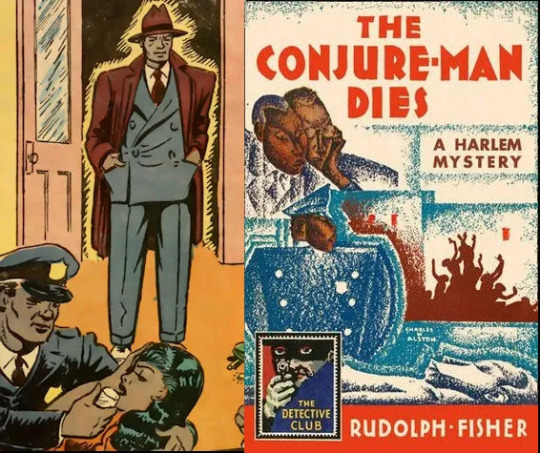
24. INSIDE REPEATING NUMBERS
To stave off the dogs, the teknohell, and the unknown opps, ELUCID makes endless calculations but with an imprecise science. One can imagine the setting for such calculations resembling N’Gana Frimbo’s consultation room, what with “obliquely downcast light” and “lateral walls…adorned with innumerable strange and awful shapes.” Those strange and awful shapes—like glyphs carved onto dusty clay tablets—included “gruesome black masks with hollow orbits, some smooth and bald, some horned and bearded; small misshapen statuettes of near-human creatures, resembling embryos dried and blackened in the sun…forbidding designs.” The conjure-man’s mantelpiece showcases a “murderous-looking club, resting diagonally.” The club is actually “the lower half of a human femur, [with] one extremity bulging into wicked-looking condyles, the other…covered with a silver knob representing a human skull.” ELUCID holds the club like a stylus, dealing in tally marks and totalities until the skull smudges out an answer.
Numbers are concrete, seemingly. “Numbers don’t lie, but they damn sure don’t tell stories either,” ELUCID rapped on “NY Blanks,” skeptical of statistics. On “IKEBANA,” he starts with “3800 out the credits.” I ain’t count it, he admits, “but it’s sweat labor.” He narrows the narrative with estimates: “ten or something”; “on time, but off-key”; “almost, almost over…so close…almost over….” These are “complicated chemicals” that only work to deepen what Rimbaud called “numerical visions.” Do the math. On “YOTTABYTE,” it’s “dead money [and] thirteen guineas for a pickaninny piano.” On “BAD POLLEN,” he “brought a trunkful of tiny violins to the bloodletting.” ELUCID can “play one on each finger for every seven bodies.” These aren’t exact measurements or accurate costs. As he says on “INSTANT TRANSFER,” he’s “counting up in the dark” (in Frimbo’s consultation room, right?). Persevering and perseverating on “14.4”: “System error, / Less than zero, / Humanity pending.” Sounding like he needs to get his affairs in order.
The numbers game inevitably leads to money—nasty business like toxic assets and credit derivatives—and money is time; time, money. “Can’t clock the kills,” ELUCID says on “THE WORLD IS DOG,” echoing Master Ace in ’90 (“Can’t Stop the Bumrush”) and Jay-Z in ’96 (“Can’t Knock the Hustle”)—earning miles while on the clock as a touring musician, tallying transatlantic and domestic flights. But is there ever a time when he’s not “waiting on money, thinking of murder,” as he raps on “BAD POLLEN”? Does the hustle, the bumrush, the killing ever cease? Or is it an interminable loop of episodes mimicking bell hooks’ oft-quoted (by all the wrong people for all the wrong reasons) opening sentence from “Killing Rage: Militant Resistance” (1995)? “I am writing this essay sitting beside an anonymous white male that I long to murder,” hooks wrote. “I’m at the age they start to count my nights out,” ELUCID raps on “VOICE 2 SKULL,” because death or revolution seems “a black power nap away” (“IKEBANA”). “Time wore us out,” according to ELUCID, speaking in the past tense as if the deal has already gone down, the jig is up, the end is here. The “24-hour drones” he mentions on “14.4” survey the damage. Too easy to get greedy and selfish at the end (“Give me a minute…give me five…”), shuffling off this mortal coil as “we wait—who knows the hours?”
25.
“IKEBANA,” despite the time-and-numbers crunch, sketches a scene of restorative habits, a survival guide for the godless. It falls short of He-is-risen optimism (Orpheus is the figurehead here, not Jesus), but we’re headed from hell to the heliosphere. ELUCID wishes the world “good morning” with “oatmeal” and “Ethiopian coffee.” He’s calculating to find peace. He feels that “everybody knew” but him—crying it out; they must know the secret to peace. Miscalculations leave him envious. Everyone laughing at his ignorance, at “all [his] comings and goings”—the state-of-the-art GPS tracking of the teknohell. RFIDs on the heels of his feet triggering field detectors.
The solution is a sometimes-turn inward: Being alive, I must look up. If the Ethiopian coffee doesn’t cut it, he’ll order an “everything bagel with the tofu scallion” or “vacuum the whip” (as he does on “VOICE 2 SKULL”). We’ve heard of his domestic resolve before. On woods’ “As the Crow Flies,” ELUCID was “cleaning up [his] kitchen, / Emptying the fridge, bleaching counters, [and] sweeping corners.” By placing his “silverware in order,” he rebuilds the rubbled world. Peace is plucked from panic elsewhere, as on “YOTTABYTE” where he’s “squatting in a Barcelona hotel room playing Wu-Tang Forever,” observing the world rather than his phone, nourishing himself through sights rather than storing up the cache and cookies of his frequently visited sites.
After many calculations, the epiphany points toward what he details on “BAD POLLEN”: “I squeeze my children’s hand and walk harder against the wind,” the same wind that rustles the dead roadside bracken, as Cormac McCarthy writes in The Road (2006). ELUCID turns to his children, his family. woods, it should be stated, does the same, as noted on “Niggardly (Blocked Call)”: “I walk ’em to school, then the park, / Hold they little hands when we cross the street.” A small step to cross the street is far simpler than crossing the Rubicon.
“IKEBANA” is another ELUCID and Jon Nellen production, and Gabriel’s muted horn is buried in the mix of the song’s bridge, a distant and dour reveille as ELUCID sings softly. As he bemoans everybody knowing what he doesn’t, Nellen’s percussion pulls us to where ELUCID wants to be: looking up. Being alive, he’s looking up out of hell. We hear his will to struggle, to survive, and to exist, but we also hear our will to “look up,” or research meaning, reflected—manufacturing it if we have to—as in, “You must learn” (life being nothing more than a boogie down production). Improve ourselves through awareness of others, of our loved ones especially, of our situation within all the scattered “scorching space junk, x’s and orbitings.” You must change your life, in Rilke’s words.
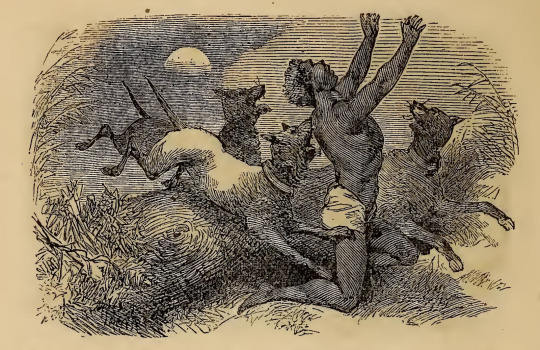
26. MAN THREATENS LANDLORD
Kill your landlord, no doubt…
—“Roaches Don’t Fly” (2021)
“SLUM OF A DISREGARD” celebrates thirty years of skullduggery since The Coup’s “Kill My Landlord” (1993), but underhanded housing policies—what ELUCID calls “comforts of material conditions core-rotted”—are nothing new. Look at Langston Hughes’ “Ballad of the Landlord” (1940):
Landlord, landlord, My roof has sprung a leak. Don’t you ’member I told you about it Way last week?
Last week is “way last week” because any leak sooner than soon, quicker than quick, becomes an inundation, a deluge, and the subsequent damage, mold spores, and stench overwhelms. Hughes’ subject alludes to withholding rental payment until the landlord “fix[es] the house up new,” but the landlord threatens back with “eviction orders.” The threat is communicated through the tenant’s account, through a series of questions—a dialogue masquerading as a monologue for the first five stanzas of the poem. The landlord is absent, a ghostly presence only there to extract profit. When the tenant turns to intimidation (“If I land my fist on you…”), we suddenly hear the landlord’s voice summoning police and precipitating an ugly and familiar scene:
Copper’s whistle! Patrol bell! Arrest. Precinct Station. Iron cell. Headlines in press…
For his threat of violence (which the landlord exaggerates as an attempt to “overturn the land”), the tenant receives a sentence of “90 DAYS IN COUNTY JAIL.” But for his neglect and threat of dispossession, the slumlord suffers nothing.
“The house is built on deceit,” Boots Riley raps on “Kill My Landlord,” acquired through primitive accumulation and the successive decades of sniping and stealing, compressing a courseload of Proudhon property is theft readings into a solitary verse. ELUCID’s landlord—nay, slumlord—is on a “Tel Aviv holiday” when the crisis hits. While the landlord uses ELUCID’s monthly rental payments to feed IDF soldiers [...my taxes pay police brutality settlements, billy woods shouts back], ELUCID struggles to get him on the phone. When he does, he finds the slumlord’s “sincerity was threadbare” and “urgency been missing.” ELUCID “smile[s] like watermelon slice,” a simile which upends the slumlord’s own race-based neglect through subversion. ELUCID will grin and bear it (for the time being), but he won’t let it go without signaling to the slumlord—or himself at least—that he’s privy to the power dynamics which undergird the exchange. In doing so, ELUCID enacts a stratagem used by poets before him. “We sliced the watermelon into smiles,” Terrance Hayes writes for fourteen consecutive lines in one of his sonnets from American Sonnets from My Past and Future Assassins (2018). In Langston Hughes’ “125th Street,” the poet doesn’t allow racist stereotypes to overshadow Black joy:
Face like a slice of melon grin that wide.
Hayes, Hughes, and ELUCID invoke historical [mis]representations by combining the smiling, subservient Tom caricature with the conniving, watermelon-thieving Coon to deliver a knowing wink to the reader/listener. In a promo video for REVELATOR, images of James H. White’s Watermelon Contest (1896) flash across the screen—an Edison film under Brakhage-like production techniques.
The longer ELUCID stays on the line with his slumlord, the sharper the sting. Mahmoud Darwish once asked, “Why did you lean on a dagger to look at me?”—and ELUCID listens long-distance to the slumlord “turn the dagger slow” with every second that passes. This is an abrasive exchange—ELUCID’s complaints and his characterization of the slumlord’s speech effectively evoked through consonance: “Too late to make it right, / Tongue-tied talk, / Make noose quick.” The slumlord stumbles over his words, speaks offensively, and we’re reminded to “believe what people say they are and do.”
Like “Ballad of the Landlord,” the conversational lines within “SLUM OF A DISREGARD” are one-sided. We hear ELUCID, in father-mode, pressing: “If this happens all the time, what’s the plan?” The slumlord’s excuses are elided, for his words are meaningless drivel. “Both my boys have my eyes,” ELUCID coldly explains, “—don’t force my hand.” His hand, like the tenant’s fist in Hughes’ poem, communicates to us that stakes is high. “Don’t force my hand,” he pleads, but Darwish writes that “we are forced to return to the inhospitable myths / where we have no place.” On “Between the Lines” (2001), Slug rapped: “If I see you as a threat to my seedling or my sibling, / I’ll die to pull the plug on your machine.” This kind of escalation really isn’t escalation at all—it is meeting the violence of the slumlord, a violence aimed directly at the face of children. “Black mold, / Black lung, / Black child,” ELUCID chants, delineating the equation. He receives “no callback” and his fury rises. An international call culminating in a rat’s nest of cords and wires—a switchboard in a landfill.
“Abuse of power comes as no surprise” isn’t just a Jenny Holzer holdover, it’s ELUCID seeing and stating that which has become so tiresomely obvious. We would have to delude ourselves to see something other than what stands before us. “I am not a prophet claiming revelation, or that my abyss reaches heaven,” Darwish writes in “Mural” (2003), “By the full power of my language I am the stranger.” We’re no stranger to oppressive language, language that oppresses. On October 9, 2023, Israel Defense Minister Yoav Gallant said, “We are fighting human animals and we are acting accordingly.” A year later, nearly to the day, ELUCID tells a truth to counter that lie: My landlord is a Zionist.

27. FRESH AS FUCK ON STOLEN LAND
With his home in disrepair, ELUCID looks elsewhere to ease the tension of his rent-strife. “IN THE SHADOW OF IF” documents a search for refuge. He seeks to construct alternate realities and “alt timelines” where he’s making “[his] own breaking news” and “Lucy shit[s] diamonds” instead of habitating the sky with them, her kaleidoscope eyes gouged out. But you would need kaleidoscopic vision, of sorts, to manifest such a place. Though ELUCID has copped to “nam[ing] a thing or two into reality” on “SKP,” “IN THE SHADOW OF IF” postulates an added if—if he wasn’t “born in the year of this country’s last recorded lynching,” maybe he’d be better off. But as he says on “Microdose,” the question—and the reality—is “who stopped recording?”
Fleeing the city, ELUCID heads upstate and beyond—somewhere coastal that he can walk “barefoot in the sand.” We discover him “stepping over dead fish in a bucket hat.” This is the downbeat of deep ecology. “Salt and sulfur,” he raps, and he “can’t tell where the wind blows.” Gusts die down and Hell reemerges (as if it ever left) | guts tighten. “I’m on that Black leisure for the increase,” he says, calling in a reservation at The Black Dog while reclined on his beachchair on Martha’s Vineyard’s Inkwell. ELUCID uses his ink well. But this all seems a reverie, an abstraction, as he challenges us to “pick a coordinate / [And] show [him] where localized perceived violence didn’t come with receipts, / White sheets.” Klan presence pervades any and all vacay getaways. You might not see the hoods and horses up north, but you will see “too many flags—one too many flags.” He’s not gonna front, “seeing all those flags outside the city make[s] [him] nervous.” These are ELUCID’s dead flag blues. They represent “physically violent reminders.” Natasha Tretheway writes that flags “inscribe both a figurative and literal white supremacy onto the physical landscape and the psyche landscape of the American imagination.” Go back to “The Blackout” (1998) where Jadakiss warned that those “rednecks up in the mountains’ll try to slay you.” ELUCID ends up feeling like he’s “been cursed to concrete,” cordoned off by external forces, told to stay in the city, which makes him wonder how he’ll keep from going under.
“The devil is a lie,” he exclaims, realizing “we are the ecology.” The mob made the devilry, manufactured it out of gurgling hate, and unfortunately “a moment to pause never goes on sale,” so peace can’t be purchased. ELUCID told us he was a “green book reader” on Armand Hammer’s “Stole,” navigating the netherworld of where no Black man, woman, or child is welcome. Time is warped; he angles through a simultaneity of oppressive timelines—“twenty years behind and ahead.” The “Black futures” he sought to build on “Stole” start to feel unattainable. Instead, he finds himself gripping “black steel in the hour of submission in search of a place to land… / …in search of a place where our blood don’t precede us.” Fact is, they built it on Indian graves. The land is composed of blood-soaked soil—runaway slaves torn to shreds, lynchings, and extrajudicial killings. On the original “Black Steel,” Chuck says, “Here is a land that never gave a damn.” ELUCID wants “purple rain” and “wild greens,” a lush and fertile vista where’ing the flowers grow and the price of avocados is free. “Search[ing] for a place to land”—forty acres won’t do. Can a reparations calculator really tell the cost of dispossession and plunder?
28. WHO’S THE SUN SEEKING?
Xoloitzcuintli guides ELUCID into Hell, but ELUCID guides us out of Hell, penning a travelogue in miniature—traffic patterns and images of languid BK denizens. Virgil-level guidework, as Mos Def once said, “from the tree-lined blocks to the tenements,” so you don’t get vicked. On “No Grand Agenda,” ELUCID spoke of his “daydream on city buses, / Brooklyn pushing [his] button,” and on “XOLO,” we appear to receive the full panorama once the sound of sulfuric screeches and barking dogs in the distance fades:
Staring at the sun— a corner florist fell asleep with his mouth open on St Felix, downhill on Dekalb, Green light succession, Stop-and-go, rubbernecking, Swerve, change directions, Head in a smoke cloud…
He squints through the sunlight so that “he won’t burn” his retinas. Not to worry—he comes protected. REVELATOR’s cover image (photograph’d courtesy of A. Richter) shows ELUCID in shades. We can map the antecedents—be it Miles Davis’s shield sunglasses, Porsche 5620s with the frame screws (precursor to Kool Moe Dee’s steez); be it Sun Ra’s Courrèges Eskimo slit glasses that he rocked on the cover of Rolling Stone in 1969; be it Afrika Bambaataa’s future-geometry set of shades. ELUCID’s might as well be a Makrolon face-shield, as he’s protected from the welder’s flash of Hell’s ultraviolet flames. On “CCTV,” he fends off the “sunshine and teargas,” the “flash bang” of dispersal orders, the anti-crowd dog’s growl and howl, the Brooklyn confetti of uprising. He does so just as the Irish travailed through the Troubles, as depicted with punkish punctuation in Ciaran Carson’s “Belfast Confetti” (1989)—with shrapnel (the titular “confetti”) in motion like movable type. ELUCID’s text goes explosive in the same ways as Carson’s: “Suddenly as the riot squad moved in, it was raining exclamation marks, / Nuts, bolts, nails, car-keys. A fount of broken type.” ELUCID’s sunglasses allow him to “see now”—all the “details” with “color-cut clarity.”
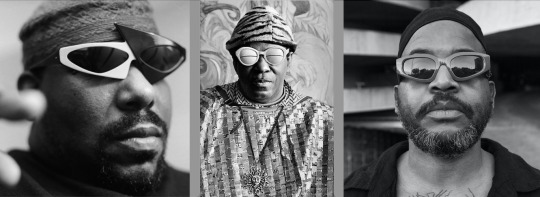
Elevating out of Hell requires him to forge his own way, an avenue that becomes familiar: “I’m acclimated, black upon a path, / I made it outta clay.” Rakim crafted in the same Creator-cum-MC way on “Follow the Leader”: “Planets as small as balls of clay.” Get the fuck back, ELUCID orders, Stay the fuck down. Run for your life; duck down—his alarum’s a Rude Awakening. When ELUCID summons N.O.R.E.’s “theoretical niggas on the run eating,” the tempo starts to increase, steadily. Fire kindles and ELUCID says what we already feel: “The house is burning here…yeaaaah.”
In William Melvin Kelly’s A Different Drummer (1962), Tucker Caliban is a slave descendant who, after serving the Willson family for generations, has had enough. He shoots dead his livestock, salts his land, and sets his house aflame in an act of defiance. The Lasso’s tempo-shift tracks with Kelly’s description of the inferno:
Orange flame climbed the white curtains in the center section of the house, moved on slowly to the other windows like someone inspecting the house to buy it, burst through the roof with the sound of paper tearing, and lit the faces of the men, the sides of the wagons, and the faces of the Negroes…. Sparks curled up and then died, dissolving against dark blue sky…. [T]he rubble of the destroyed home looked like a huge city seen at night from a great distance.
Tucker’s family leaves the town of Sutton and the other Black residents soon follow, baffling the white residents who watch the procession of “suitcases or empty-hand[s]” headed for the state border. As a crowd watches Tucker blast bullets into his horse and cow, witnessing the “sticky blood r[u]n down” their fur,” as they watch him ax “the twisted tree” on the Willson Plantation, “on which his great-grandfather and grandfather had been slaves and then workers,” they think he’s gone mad. Enlightened Harry Leland refutes this, though. “It’s his land. He can do anything he wants to it,” he tells his young son.

29. P.L.O. STYLE
You may burn my poems and books You may feed your dog on my flesh…
—Samih al-Qasim, “Enemy of the Sun” (1968)
ELUCID dropped a zim zala bim on Armand Hammer’s “Solarium,” but—in recognition that magic can’t be the only survival method—he now promotes a zigzagzig. DJ Haram provides the sound design—a metallic gnashing, a chittering of rebar stakes, and a bass that throbs, muted and distorted, like eustachian tubes swollen from proximity explosions. On “Old Magic,” ELUCID offered a “double portion of protection,” but even charms and conjurings aren’t always enough. Under “war clouds” and a “cruel sky,” his “niggas survive like a moving target.” Zig. Zag. Zig. With the Knowledge, Wisdom, and Understanding of the last letter in the Supreme Alphabet—the zed, the end. Another bend of the body—an Orphic bend toward protest. The thousands upon thousands of Gazan orphans crying out to be heard.
For years, dead prez’s M-1 has argued that the struggle for Black liberation and the struggle for Palestinian liberation were “the same struggle.” “We have always been an international cadre,” he has said, “We have to see ourselves as a movement without borders.” Teknology allows deaths far and wide to be televised, rewound, reproduced on a “watch again” | replay | “share” exploitation loop. “I didn’t watch the video,” ELUCID says—and who can say which video? We wade through yottabytes of video footage like tonnes of debris. The video could be of grieving mothers in Khan Younis carrying the corpses of children, or it could be of Philando Castile bleeding out in the passenger seat of his Oldsmobile 88. ELUCID willed himself to not watch the video—to not tune into the Black death | Palestinian death broadcast—because he already “remembered in [his] body,” in his bones in which the trauma sings, in the code genetically imprinted.
The specter of Palestine pervades REVELATOR. Listeners are more likely to scan ELUCID as “abstract rap” than “conscious rap” or “political rap,” but that’s only because ELUCID’s art is so innately revolutionary and activist, lacking the sharp edges and defined features of more contrived artists. The abstraction is that the unacclimated will perceive ELUCID as a mystic on the mic rather than a rebel. He can be both; he can defy categorization; he can perform more powerfully than any single genre tag or pigeonhole could signal.
The history of solidarity reaches back to the 1970s with communiqués shared between the Black Panther Party and the Palestinian Liberation Organization (Method Man’s P.L.O. Style would never…). Kwame Ture (née Stokely Carmichael) dreamt of “having coffee with [his] wife in South Africa” and “having mint tea in Palestine.” Liberatory lucid dreaming. We collectively hope—and work—for better futures, for the dogs of Abu Ghraib and the hounds of the Great Dismal Swamp pace the same Hell. “I shall not compromise,” Samih al-Qasim writes, “And to the last pulse in my veins / I shall resist.” al-Qasim’s poems were discovered in George Jackson’s San Quentin cell after his death. “Enemy of the Sun” would even be misattributed to Jackson because he had transcribed the poem by hand.

ELUCID finds the energy, the caloric boost, in “locust and wild honey”—embracing this ascetic appetite of John the Baptist. He changes out his alpenflage cargo pants for a camel’s hair robe and leather belt about his waist (getting down with the animal pelts). He shelters in a “deeper shade of carnage,” turned from a whiter shade of pale, and “stare[s] into the fire,” scrying, divining answers from the glowing embers. On “14.4,” he said he “live[s] between two mirrors,” spitting catoptromancy raps wearing the “bulletproof Girbaud” from “YOTTABYTE,” backpocket containing a bulletproof wallet. Layers of protection. It’s the only way to “fix up sharp,” as he says on “IKEBANA” with dizzee rascality. Dressed to impress, he’s a “stiff-lip maroon.” In Maroon Societies: Rebel Slave Communities in the Americas (1973), we learn that “in Surinam, as in Haiti, Jamaica, and elsewhere, warriors underwent complex rites and wore amulets intended to make them bulletproof…. [I]t was their gods and obeahs that spelled the ultimate difference between victory and defeat.” You already know ELUCID’s been spellling. And because the world always has been and continues to be dog, Cujo, Stephen King’s rabid St. Bernard, can be traced to Cudjoe, the Jamaican maroon leader. “A fearless rebel [who] boasted numerous bloody victories against the British,” Boisseron writes.
When ELUCID sees the “heads of state laughing” on “ZIGZAGZIG,” he knows they’re “liars” and that “hate has a logic.” They laugh “an idiot’s unbearable laughter,” to quote Rimbaud, still sweating through his Hell szn. But so are we all, grappling with the fact that “there’s no conscience, no authority.” ELUCID “live[s] to tell the story, / …to sing the song”—witness to atrocities, articulator of awfulness. When he can, he hammers out a warning. But he’s always on alert for imminent attacks which strike “without a warning.” Despite our teknological advances, we’re still a primitive society—our world still reduces to rubble, routinely. MPR500 precision-guided missiles fall from the sky and a Palestinian child stashes snacks in an abandoned IDF ammunition box. We search for survivors by hand—“Stony ground, metal poke out rubble, / Body twist angles akimbo, / Covered heads huddled”—hoping and praying for signs of life—head aching like rebar through skull, an inglorious Phineas Gage.
On “Revelation Narrative” from Horse Latitude (2017), we hear the voice of a young child calling out: I want mama. How prescient. But the past tells the present, the future. 1948 | 1967 | 1987 | 2000 | 2008 | 2023 | & every increment in-between. ELUCID calls “from river to sea in lieu of peace, absence of truth.” He finds the gutless heads of state “guilty as charged.” They’re “monster[s] out the darkest abyss,” and—like dogs, like hellhounds—they exhibit a “gnashing of teeth.”
The death toll tolls for thee. John Donne felt the weight of every dun: “Each man’s death diminishes me, / For I am involved in mankind.” ELUCID makes the same pitch, even to those deaf to reason. His mathematics don’t need to be supreme; the most basic arithmetic tells a truth:
Who can still ignore the score? One more—to what end? Man-made horror beyond comprehension.
30. I WOULDN’T TRUST IT IF THE POET DOUBT
After Revelation come a Genesis…
—Small Bills, “Falling Up” (2020)
No variety of literary originality is still possible unless we torture, unless we pulverize langage.
—E. M. Cioran, The Trouble with Being Born (1973)
ELUCID pulverizes language. The lyrics on REVELATOR read like Bible page cut-ups, like Gysin and Burroughs put the scissors to ’em, like garbled Ghostface transcriptions. Narrative gets negated—not to confound, but to complicate communication. In doing so, ELUCID mirrors our shattered contemporary speech patterns, only it's art not the garbage glibness that the Geto Boys apprised us of in ’89—talkin’ loud but ain’t saying nothing. His Orphic bend and cadence flexing leave us levitating, lost in what Rimbaud calls a “hallucination of words.” More from Rimbaud:
I regulated the shape and movement of every consonant, and, based on an inner scansion, flattered myself with the belief I had invented a poetic language, that, one day or another, would be understood by everyone, and that I alone would translate…. Worn-out poetical fashions played a healthy part in my alchemy of the word.
On “VOICE 2 SKULL,” ELUCID cops to “complicating noun combinations over drumbreaks.” He felt the existing “language insufficient—chess pieces to the checkerboard.” His new language includes words for the living and “words for the departed” (“ZIGZAGZIG”), as if a seraph touched a burning coal to his lips. His diction ushers in cosmic agonies. His voice is “the strange instrument of death,” loaned from the conjure-man Frimbo. Listening to REVELATOR, I see the colors, geometry, and nonlinear wanderings of Wadada Leo Smith’s scoring of improvisation, his Ankhrasmation language articulated into words.
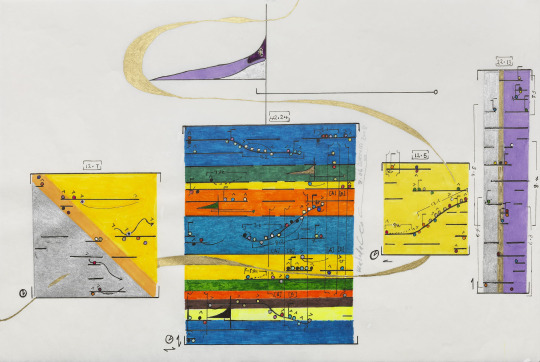
31.
In 1965, Amiri Baraka ended his liner notes to The New Wave in Jazz on this hushed note: “New Black Music is this: find the self and kill it.” Nathaniel Mackey has interpreted Baraka’s statement in the following way:
...in the course of improvising and getting to the point where you can play free music, you have to find yourself. You have to find out what your sound is. It may be something innate, but you have to practice and find what it is, where it is, and how to get it out, and how to translate it through a horn or a piano or a bass—whatever—which you likely call “technology.” How do you technologize yourself? How do you utilize that technology to render something that may be unspeakable, or there before not spoken—and maybe unrenderable? How do you get out a version that at least approximates that self and, at the same time, registers your refusal to be satisfied that you have properly and authoritatively, or with some finality, articulated that self?... In some ways, you have to be prepared to lose that self, or even to be an instrument of losing it, which is to say, to be killing it.
By this measure, ELUCID has found out what his sound is. On REVELATOR, he’s getting it out, violently. He’s translating it through his trauma mic—that is his chosen teknology. He has killed the self, and—to speak in the terminology of today—he keeps killing it.
“This ELUCID for whoever’s asking,” he once said on Armand Hammer’s “Resin,” and he’s forever been “staring at the sun” (“XOLO”). Often overlooked is the irony (or anti-irony, depending) of the MC’s name. Elucidate—to “throw light upon,” to “render intelligible,” perspicuity for the patron saints of post-rap. These ideas are at odds: How can he complicate and clarify? Make the equation make sense [ELUCID = light = “sun”]. “[W]e know that every apocalyptic eschatology is promised in the name of light, of seeing and vision,” Derrida writes, “and of a light of light, of a light brighter than all the lights it makes possible.” John the Revelator’s apocalypse is “lit by the light of El, of Elohim,” he adds. [T]he glory of Elohim illuminates it [21:23]. It’s as if ELUCID is “applauded by sunrays,” as Saul Williams says on “Elohim (1972).” Gnaw on this while you head-nod:
...what imposes itself as the enigmatic desire for vigilance, for the lucid vigil, for elucidation, for critique and truth, but for a truth that at the same time keeps within itself some apocalyptic desire, this time as desire for clarity and revelation, in order to demystify or, if you prefer, to deconstruct apocalyptic discourse itself…
ELUCID takes on the apocalyptic tone, and whoever takes on the apocalyptic tone comes to signify to, if not tell, you something. What? The truth, of course, and to signify to you that it reveals the truth to you.

Images:
A close-up of “the Envious,” Anonymous, The Last Judgment, (ca. 12th century), Gold and glass mosaic, Santa Maria Assunta, Torcello | A hand-colored woodcut of a 19th-century illustration shows an escaped slave trying to elude slave hunters and their dog. (North Wind Picture Archives/AP) | Gilbert Shelton, The Fabulous Furry Freak Brothers, Unknown issue (detail) | Bill Hudson, “Parker High School student Walter Gadsden being attacked by dogs in Birmingham, Alabama,” The New York Times (May 4, 1963) | McGruff the Crime Dog PSA, “Don’t Talk to Strangers,” 1984 (screenshot) | Robert Cohen, “Ferguson police officers during a protest in August 2014” (Associated Press) | DMX, “Get At Me Dog” music video, dir. Hype Williams, 1998 (screenshot) | Tadayuki Naitoh, “Miles Davis” (1971) | Jacob Riis, “The Trench in Potter’s Field on Hart Island, New York,” (ca. 1890) | Barry Williams / Getty Images, “Mayor Eric Adams and NYPD officers look at a robotic device from Boston Dynamics” (2023) | The Wire theme song, dir. David Simon, 2002 (screenshot) | Dread Broadcasting Corporation flyer (ca. 1981-83) | Unknown photograph of computer desk (c. 1999) | Stephen King, Cujo, first edition cover, 1981 (detail) | Joan E. Biren, “Portrait of writer Audre Lorde at work at her desk, surrounded by papers, books, and posters” (1981) | Image of ham radio (Lehigh Special Collections) | Self-portrait of Arthur Rimbaud in Harar, Ethiopia (1883) | Scaramanga, Seven Eyes, Seven Horns, interior cover art, Sun Large Music (1998) | Rudolph Fisher, The Conjure-man Dies, first edition, Covici-Friede Publishers (1932) | Illustration in Abel C. Thomas’s Gospel of Slavery, 1864 (detail) | Gordon Nye, “New York City Rent Strike” in the Yiddish newspaper Di Varhayt (1907) | Afrika Bambaataa (unknown) | Sun Ra, photograph for Rolling Stone (1969) | REVELATOR album cover, Alexander Richter (2024) | Richard Ansdell, “The Hunted Slaves” (1862) | “Black Panther Party founder Huey P. Newton outside an unnamed Palestinian refugee camp in Lebanon,” Unknown photographer (1980) | Wadada Leo Smith, “Kosmic Music” (2008) | A close-up of “the Envious,” Anonymous, The Last Judgment, (ca. 12th century), Gold and glass mosaic, Santa Maria Assunta, Torcello
17 notes
·
View notes